If you stop at the first 'hell no,' then it’ll never happen. You got to continue to push forward, particularly if it’s something in your heart of hearts you really believe in.
General Charles Q. Brown Jr. is a pioneering U.S. military leader who, in 2023, was named chairman of the Joint Chiefs of Staff, the nation’s highest military officer. In 2020, he became the first Black American to lead a branch of the military service when he served as Chief of Staff of the U.S. Air Force.
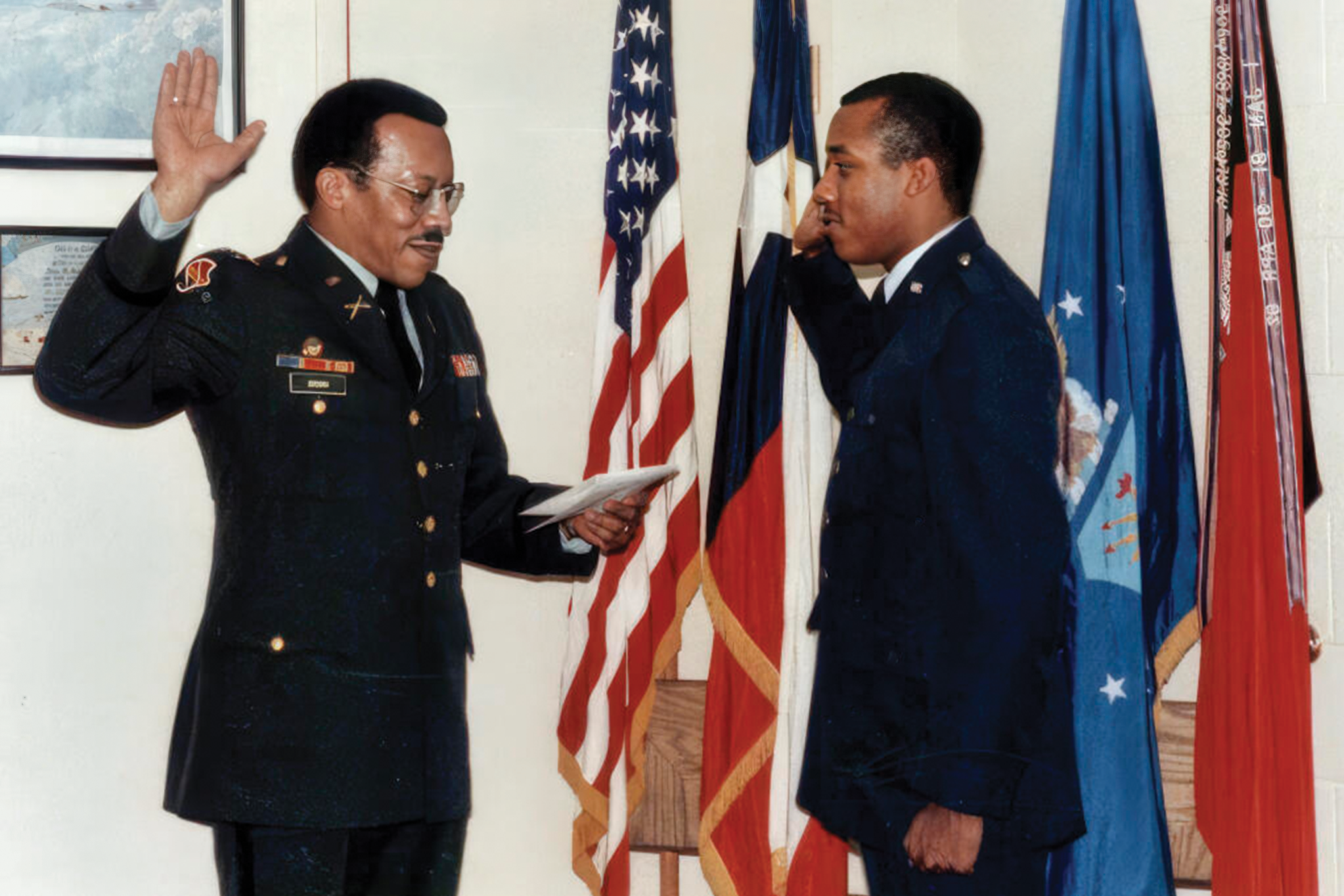
Known as “CQ,” Brown is a native of San Antonio, Texas. His father and grandfather had served in the U.S. Army, but at an early age, he had a passion for aviation and joined the Air Force, where he became a combat pilot and then commander of his own squadron.
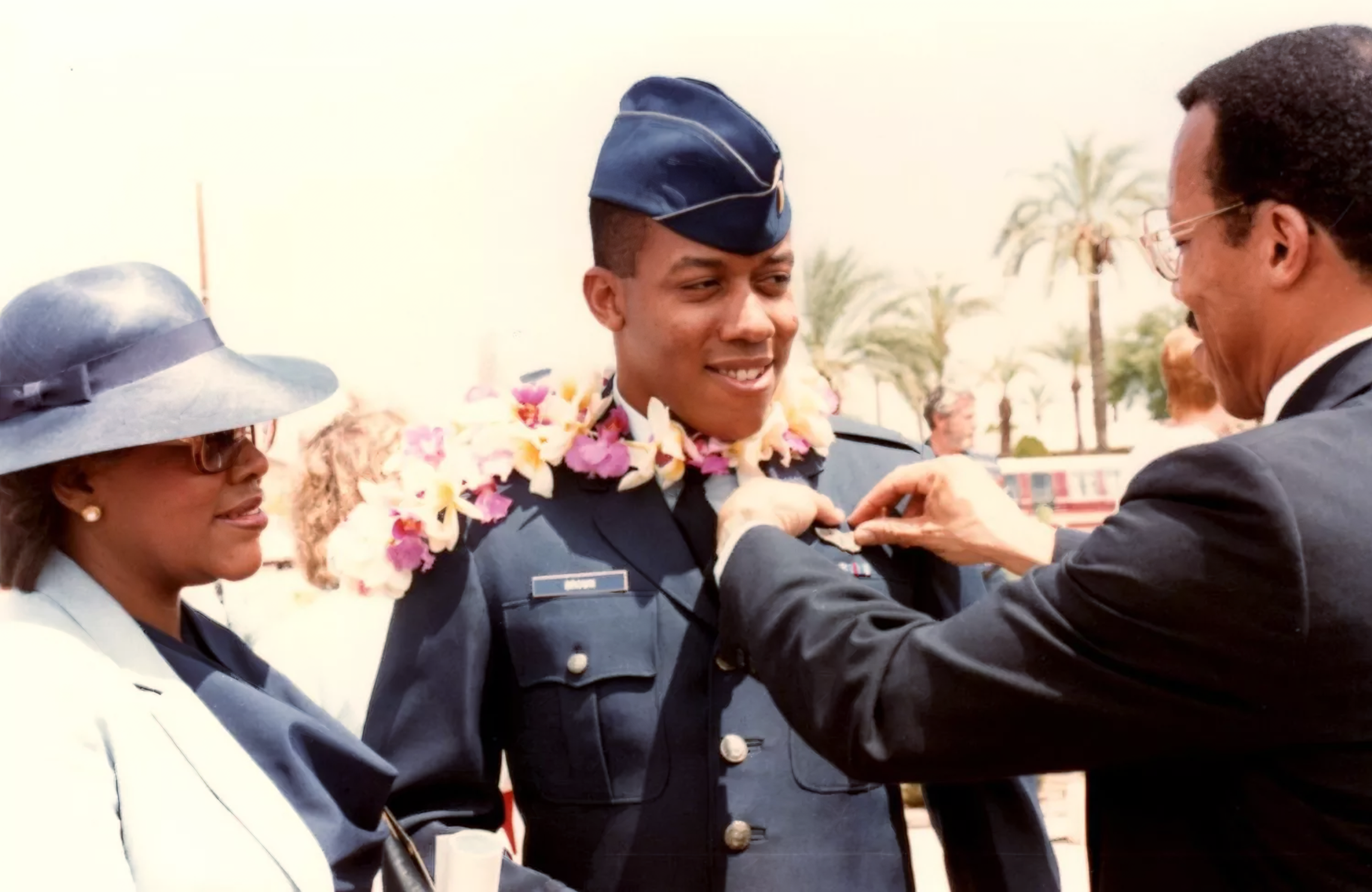
Brown was born into a military family in 1962. His father, Charles Sr., served in the Army, and his grandfather, Robert E. Brown, fought in World War II. His father’s encouragement led him to join the ROTC in high school, offering a path to college and a potential military career.
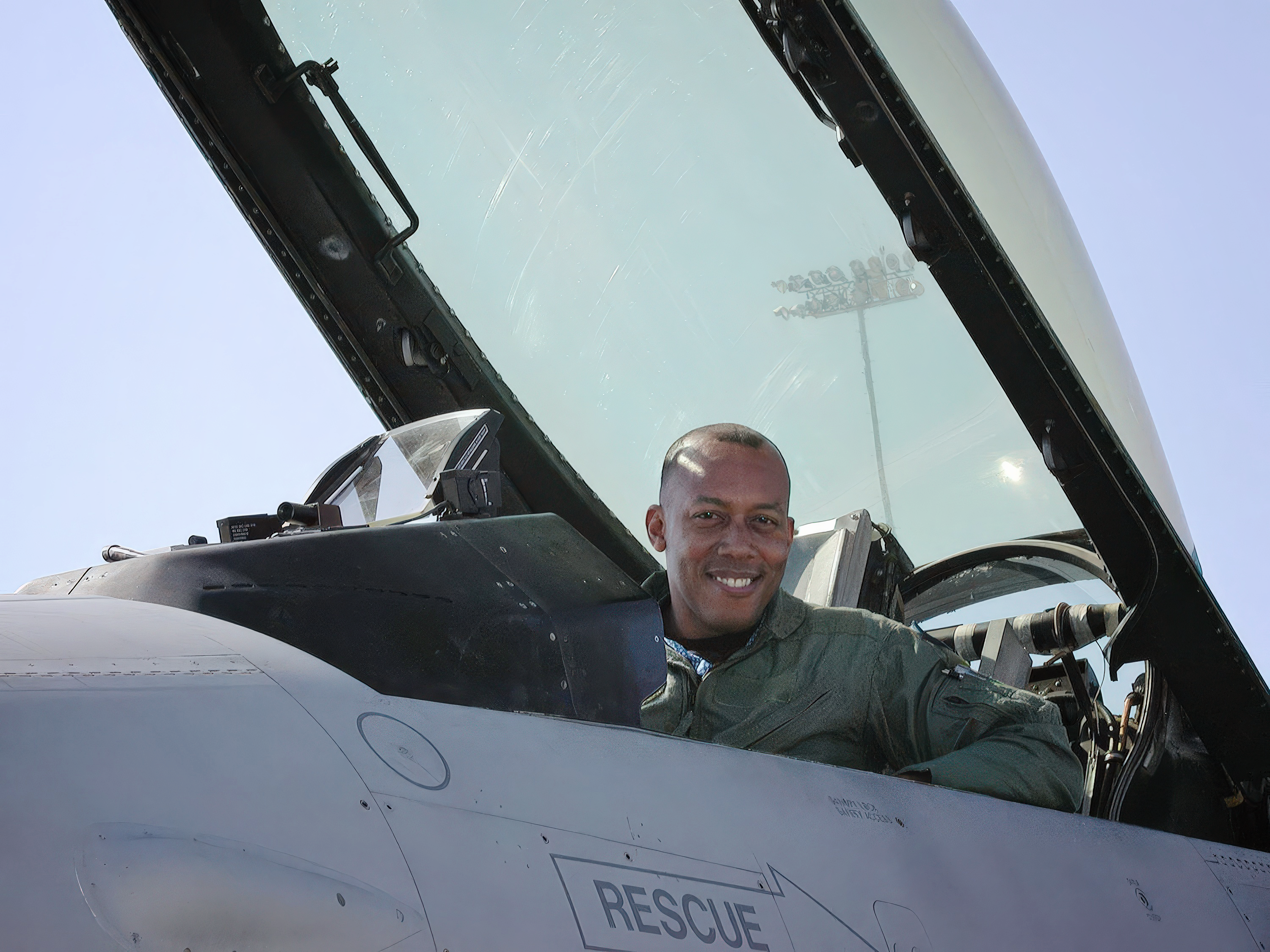
Brown attended Texas Tech University, majoring in civil engineering, and joined the Eta Upsilon chapter of Alpha Phi Alpha fraternity. It was during his college years that he discovered his love for flying, an experience that changed his life. He recalls, “You get away from…everything. On a cloudy day, you take off, pop through the clouds into the sunshine. It’s like riding a magic carpet.”
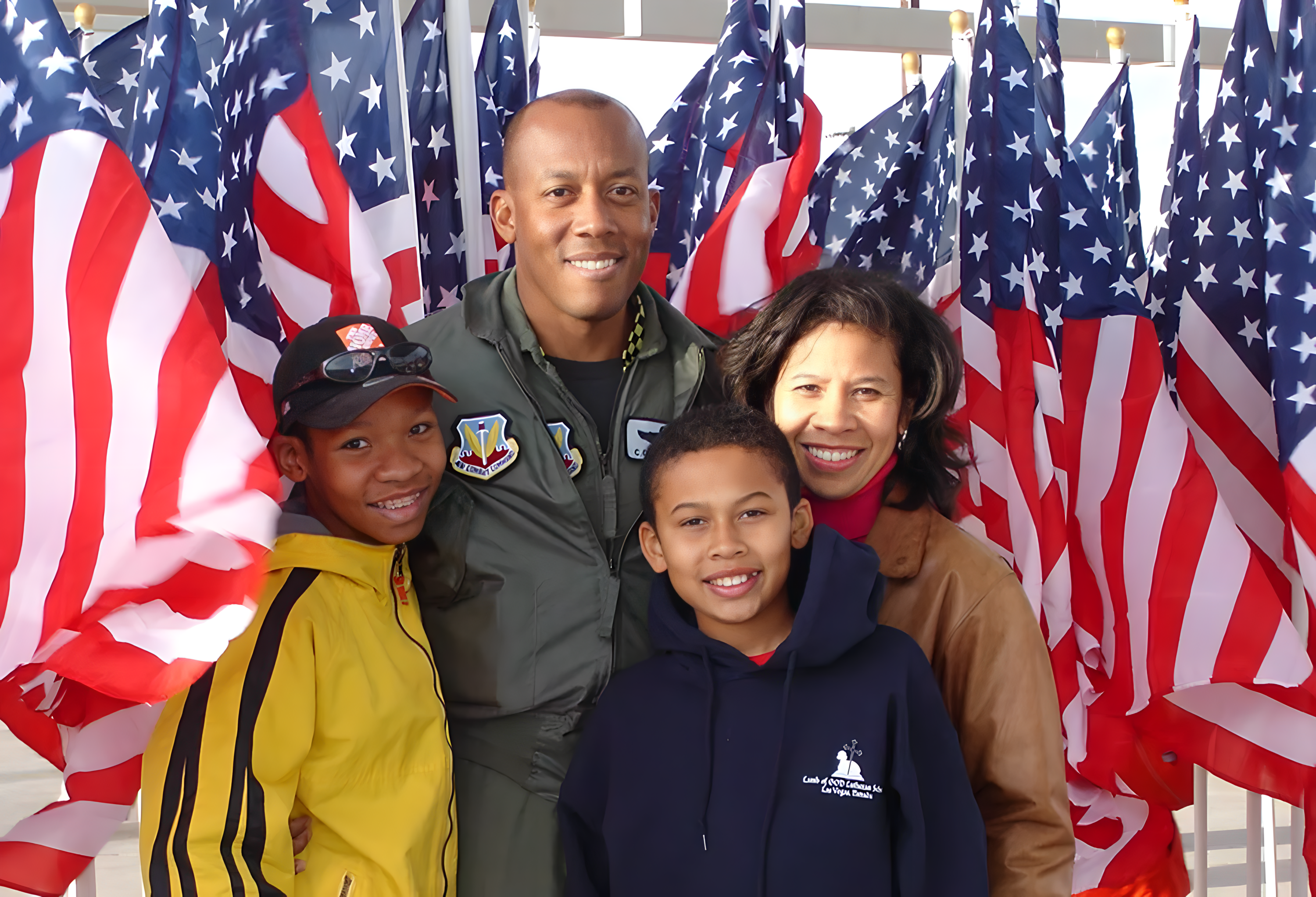
Commissioned as a second lieutenant in 1984, Brown’s career in the Air Force is marked by rigorous training and a series of command positions. He served as an F-16 instructor at the United States Air Force Weapons School and led the 31st Fighter Wing in Aviano Air Base, Italy. He also commanded the Pacific Air Forces and U.S. Air Forces Central Command.
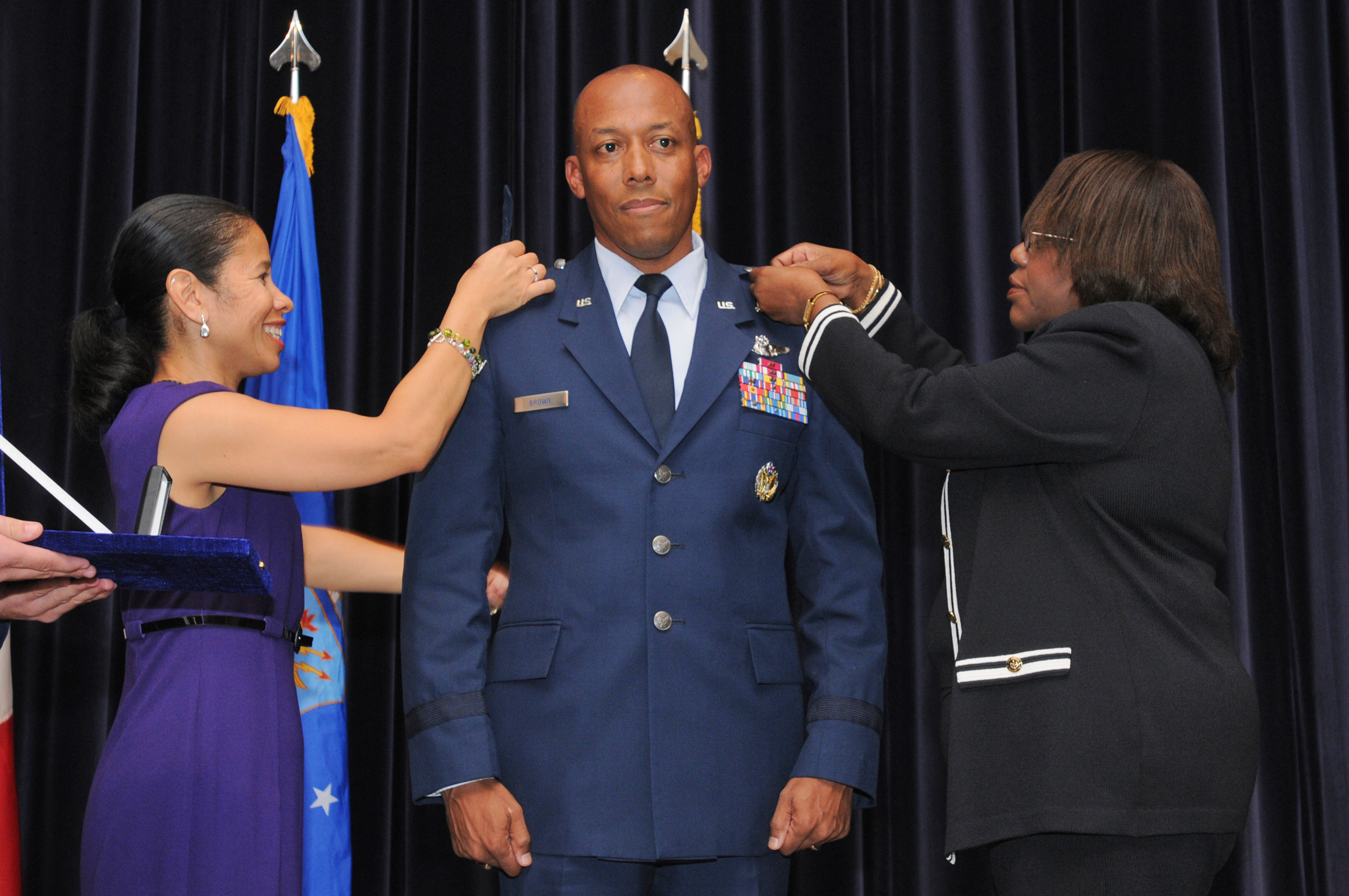
In 2020, he was appointed the 22nd Chief of Staff of the Air Force, making history as the first African American person to lead a branch of the U.S. Armed Forces. His leadership during this period was marked by innovation and adaptability, ensuring the Air Force remained at the forefront of technological advancements.
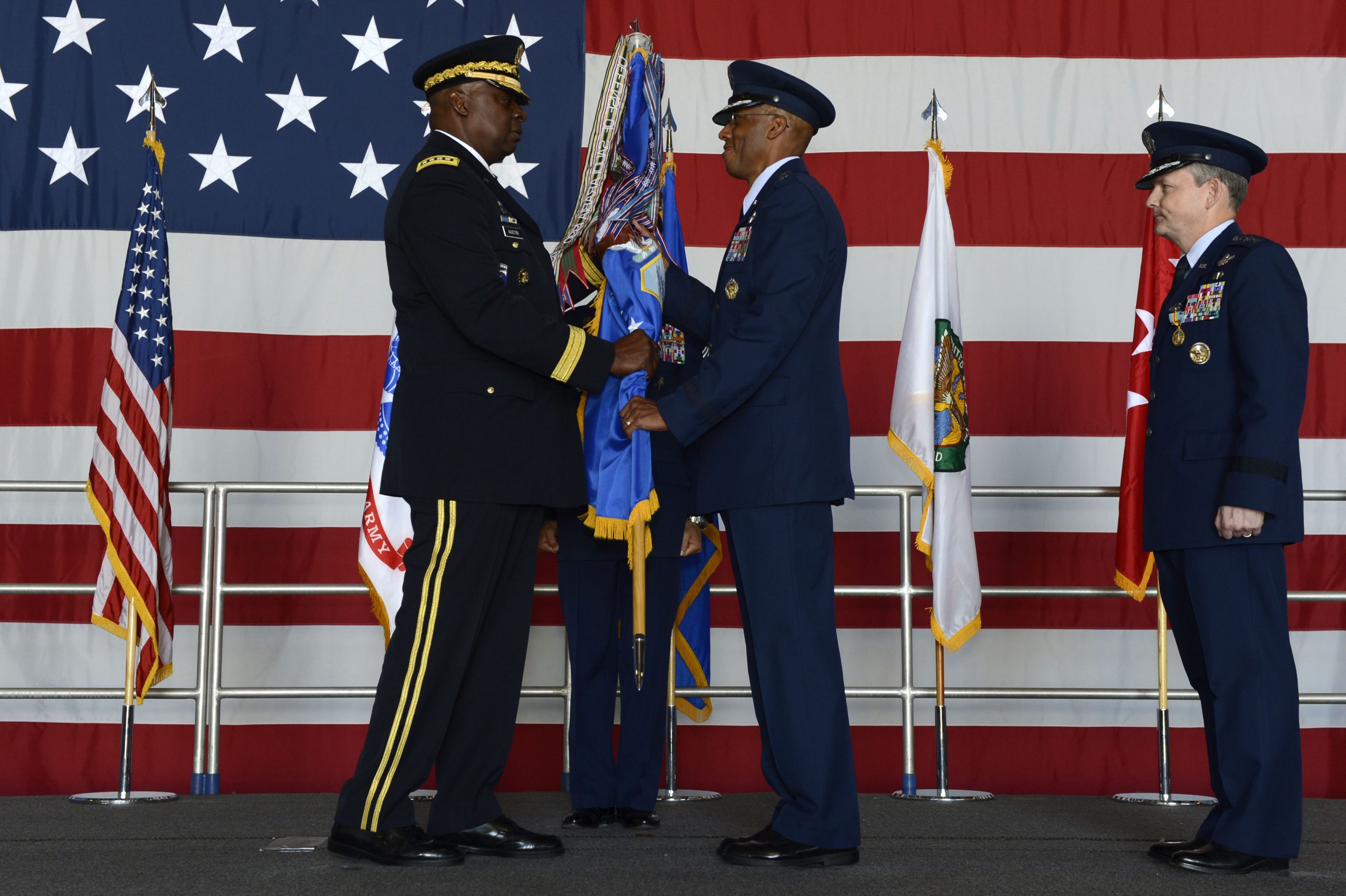
In 2023, Brown’s journey reached its zenith when he was appointed as the 21st Chairman of the Joint Chiefs of Staff, the highest-ranking military officer in the United States Armed Forces. In this role, he advises the nation’s top leaders on military matters, bringing his wealth of experience and strategic insight to the forefront of national defense.
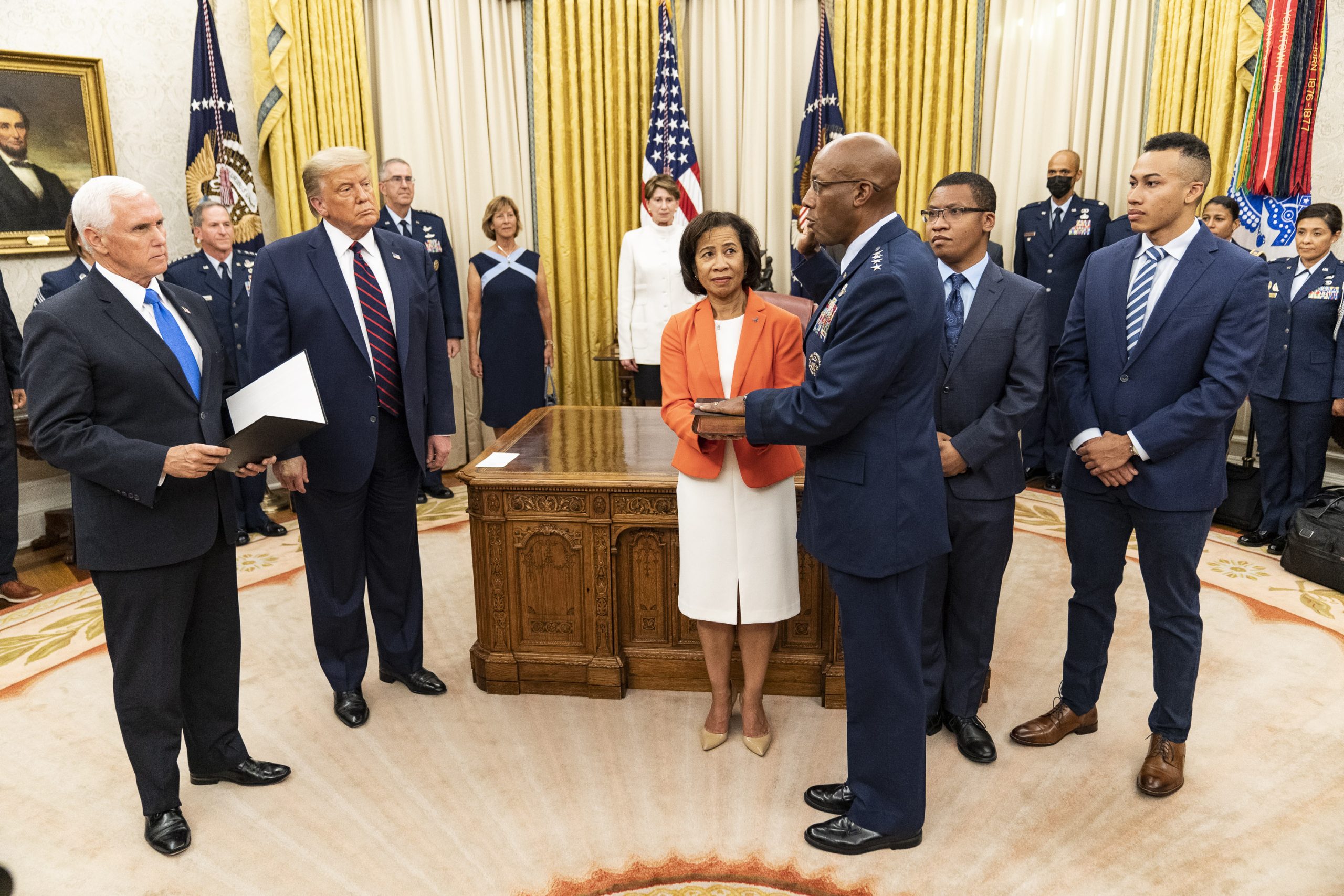
Reflecting on his career, Brown often speaks about the importance of preparation and the value of teamwork. He draws parallels between military operations and sports, emphasizing the precision and coordination required to achieve success. “In flying, in combat or day-to-day operations, you need to walk under a little bit of apprehension because too much confidence can lead to mistakes,” he says. This cautious approach, combined with meticulous planning, has been a hallmark of his leadership.
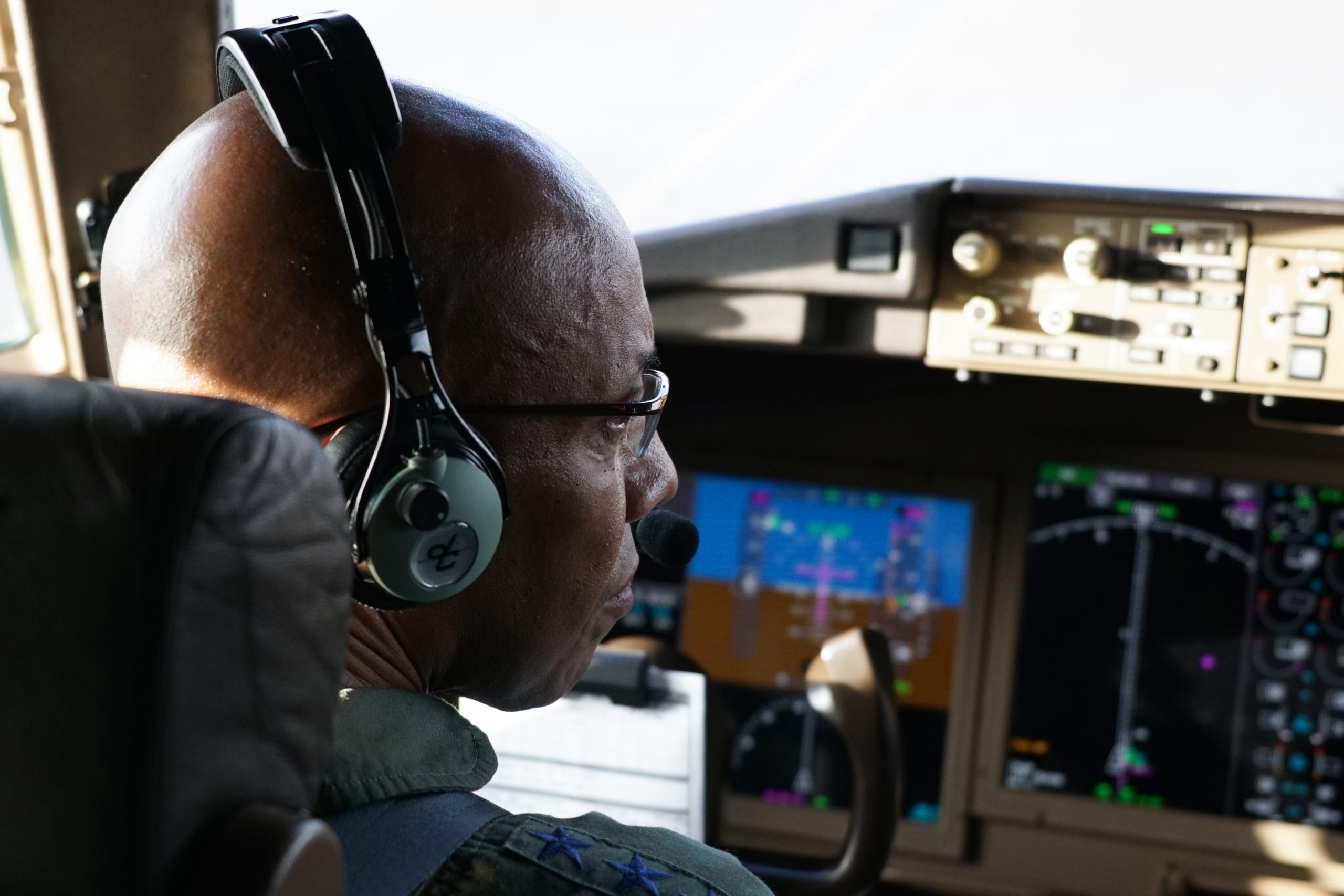
He likens military operations to a well-executed sports game plan, where every participant knows their role. Whether leading a 20-ship strike package or coordinating joint teams, this orchestration of efforts exemplifies the beauty of teamwork. Brown’s ability to bring people together to achieve a common goal, all in support of national objectives, is something he has thoroughly enjoyed throughout his career.
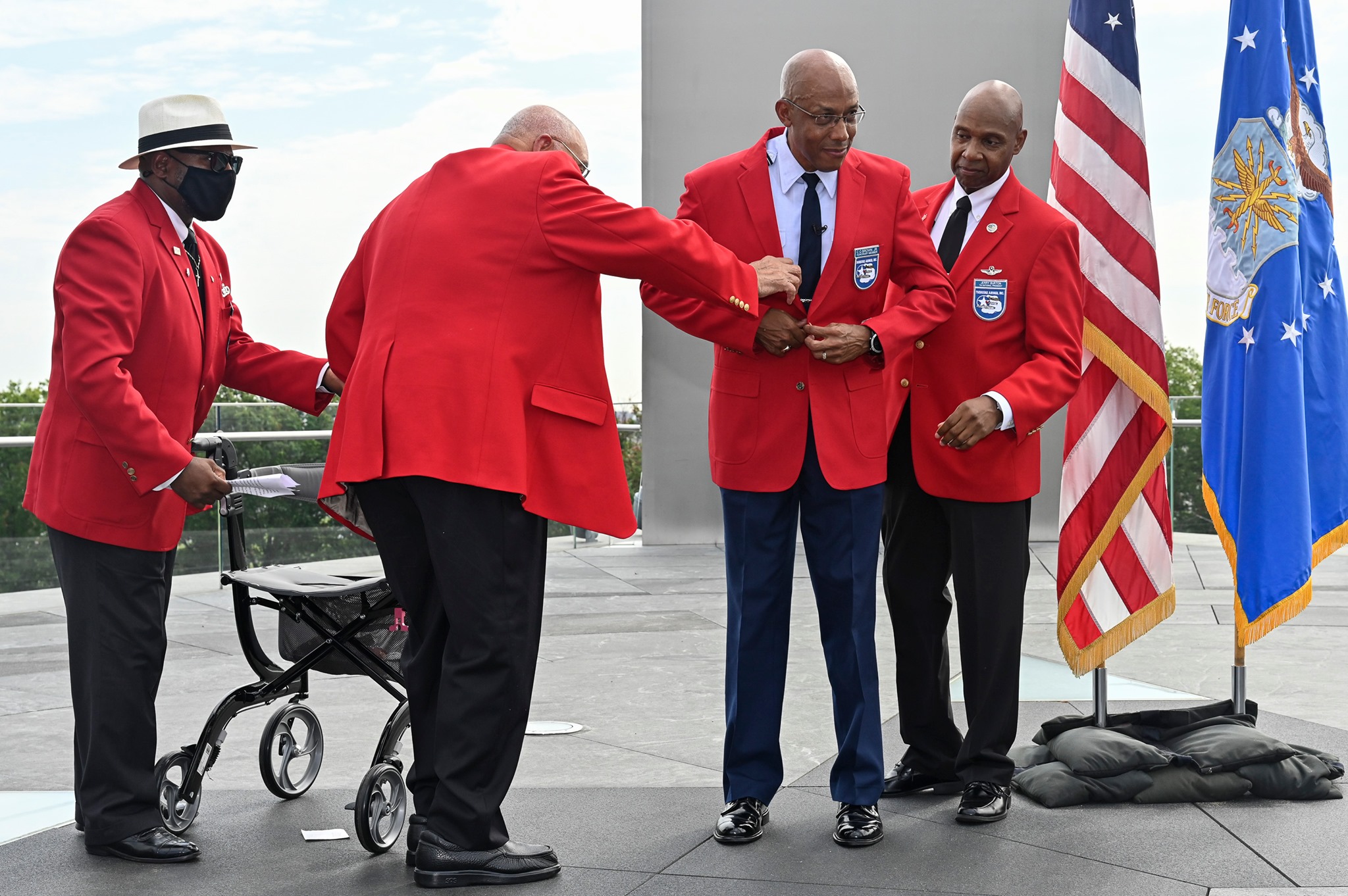
Brown’s journey has not been without its challenges. As an African American person in the military, he has often found himself as the only person of color in the room. This experience has shaped his perspective and fueled his determination to pave the way for others. “You only aspire to be what you see,” he often says, highlighting the importance of representation and mentorship.
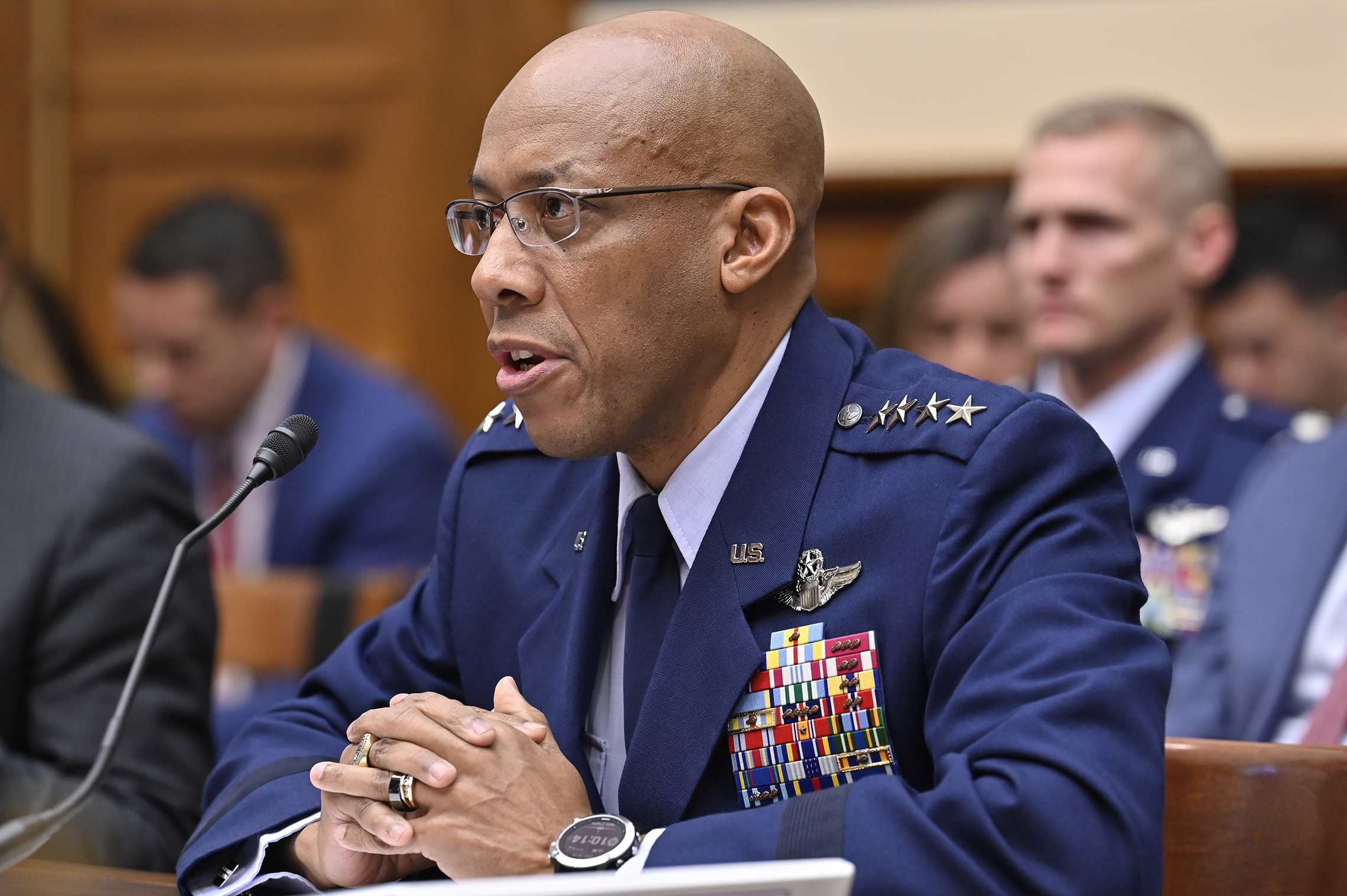
He understands the pressure of being a trailblazer and the responsibility that comes with it. “You feel the extra pressure to perform because you may be the first and only, and you don’t want to damage the opportunity for someone else that comes behind you.” One powerful example of Brown’s willingness to address critical issues surrounding race occurred after the killing of George Floyd by Minneapolis police.
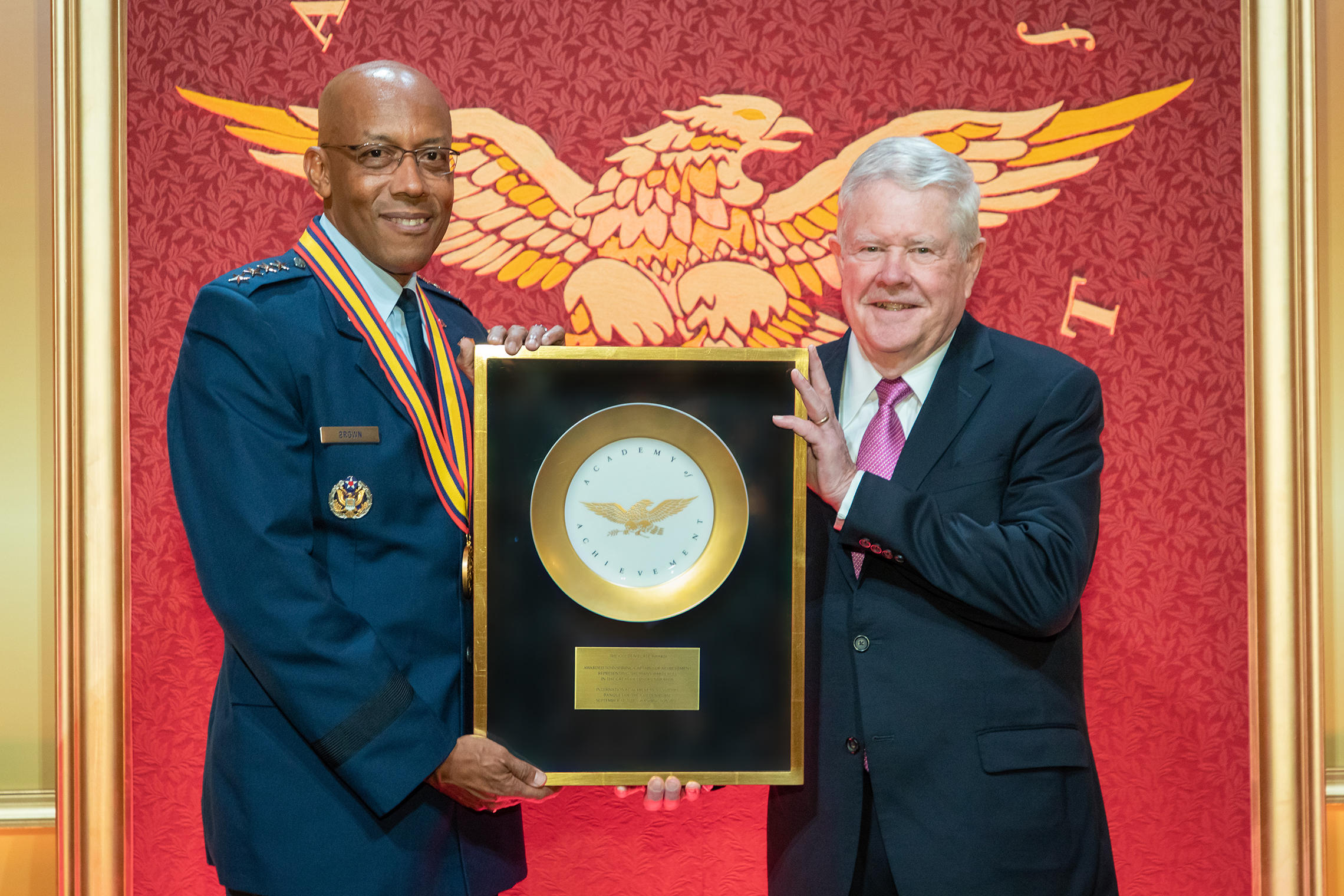
Despite being in the process of confirmation as Chief of Staff, Brown chose to voice his frustration and concerns. “You watch over the years, and you can watch a little bit today, what happens to African Americans in certain situations. It’s frustrating to watch,” he shared.
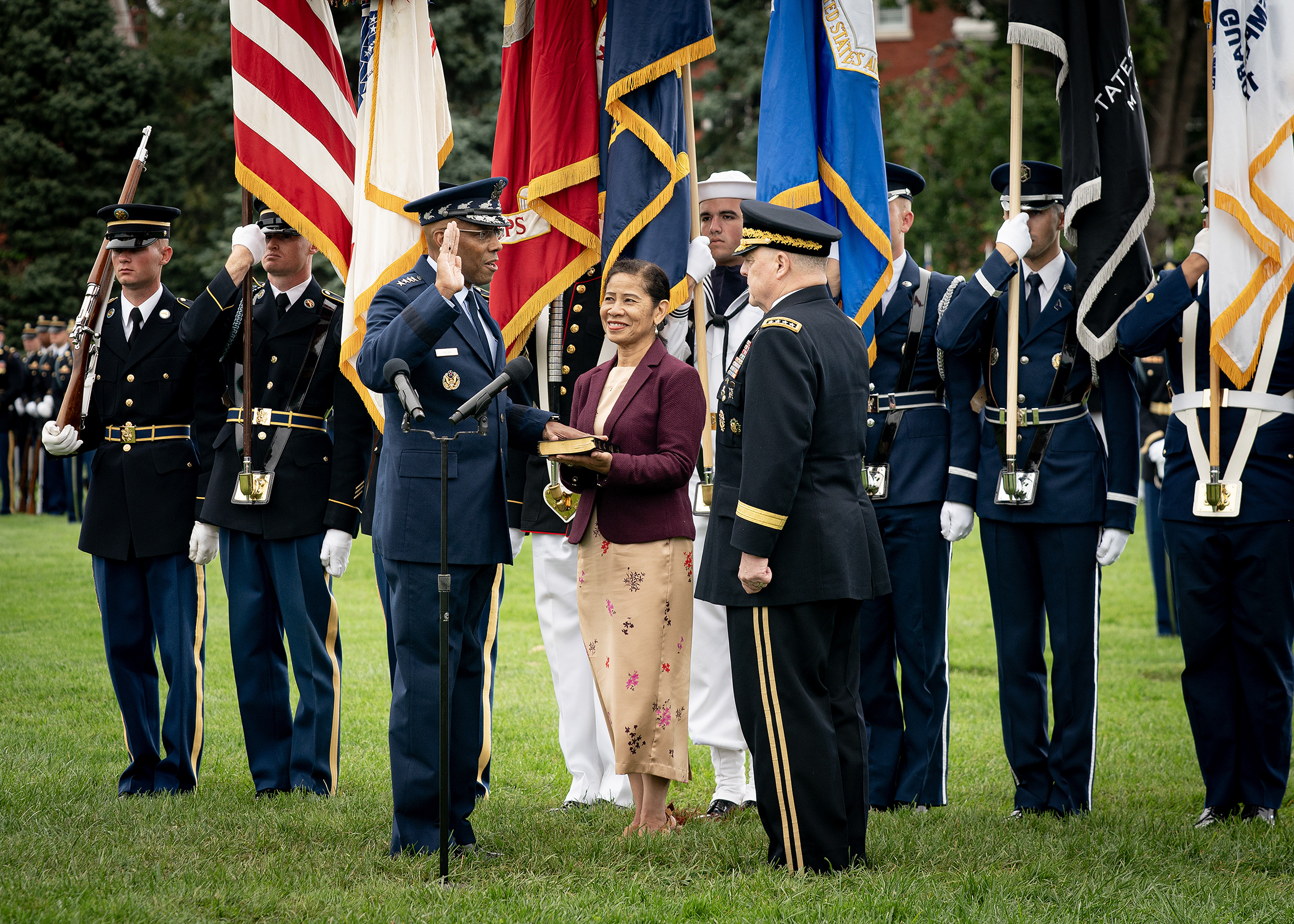
Amid nationwide protests and internal conflict about whether to remain silent before his confirmation, Brown’s decision was influenced by a poignant question from his son during a phone call: “Dad, what are you going to say?” Moved by his son’s struggle and the national outcry, Brown crafted a heartfelt message, initially intended for his airmen but which resonated widely. In his video, he spoke about what it was like to navigate “two worlds,” battling microaggressions and discrimination throughout his upbringing and time in the military. He openly expressed his thoughts on the disparity between the nation’s ideals and the reality many African Americans face.
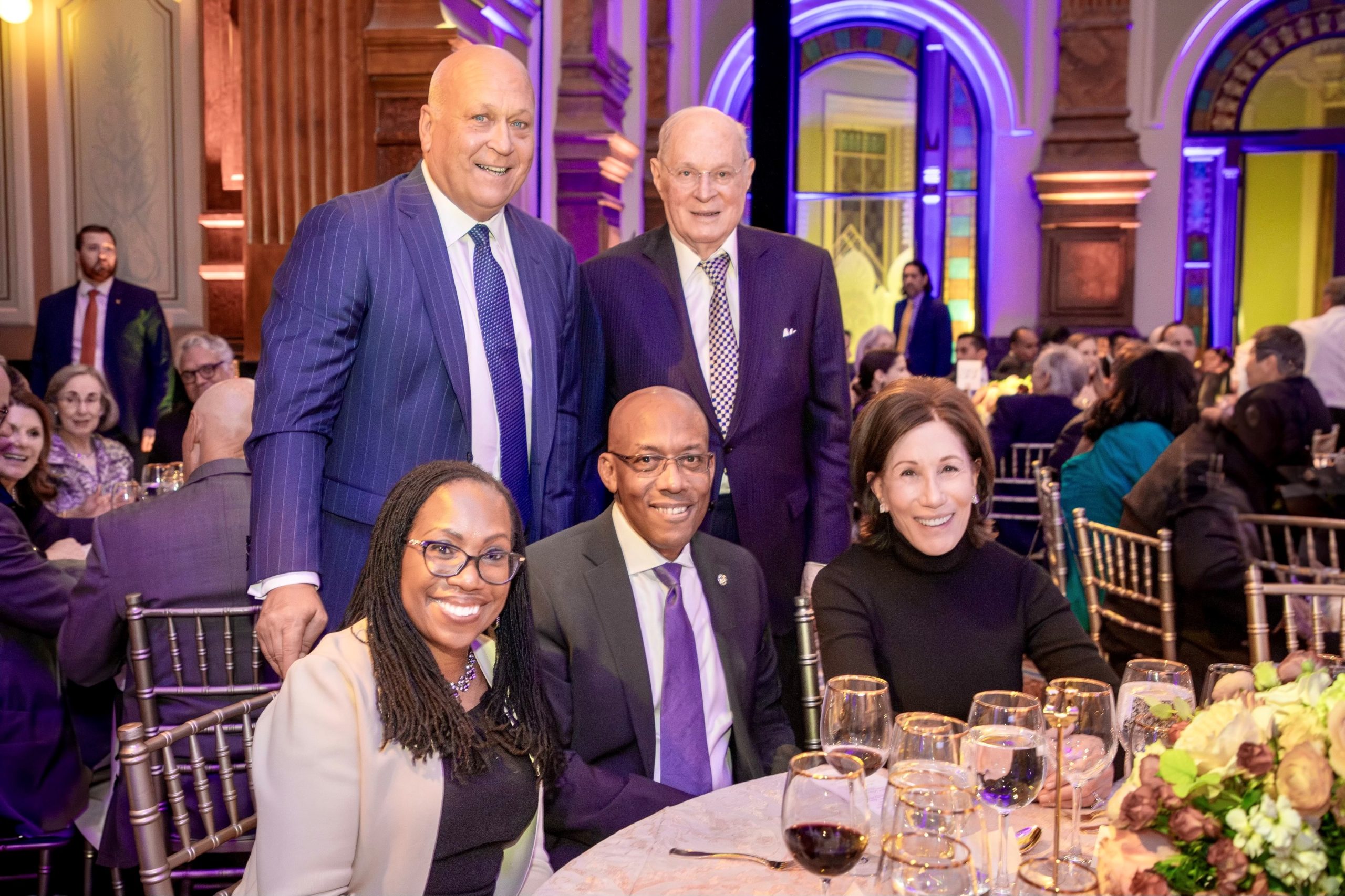
General Charles Q. Brown Jr.’s life is a powerful testament to perseverance and leadership. Reflecting on his career, he has always emphasized the importance of serving with integrity and a higher calling. “We do this for a reason: because we enjoy serving; we have a higher calling to serve our nation,” he says. Brown acknowledges the challenges and unfair treatment he has faced yet remains optimistic.
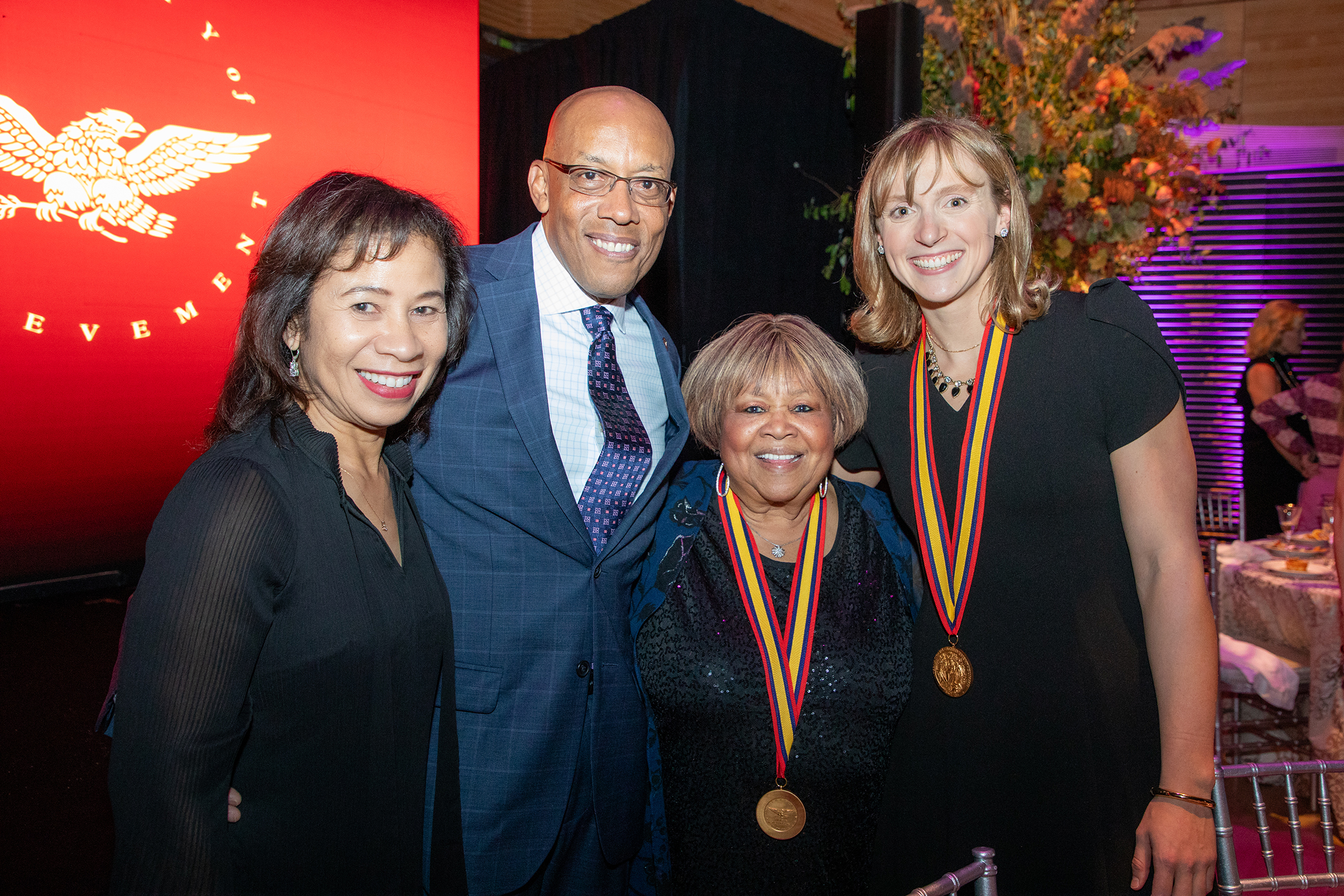
His approach to overcoming adversity is clear: “If you throw in the towel because you come against a challenge, then it’s not worth fighting for.” Brown’s story inspires us to persist through difficulties, be vocal when necessary, and remain steadfast in our commitment to effecting change.
On February 22, 2025, in a dramatic shake-up of the top ranks of the armed forces, the Trump administration dismissed General Brown from his post, along with the admiral leading the Navy and several other senior Pentagon leaders. Brown was removed despite strong support from key members of Congress and military officials and succeeded by a retired three-star general.

General Charles Quinton Brown Jr., known as “CQ,” epitomizes the core values of the United States Air Force: integrity, service, and excellence. Rising from a military family in San Antonio, Texas, to become the 21st Chairman of the Joint Chiefs of Staff, his journey reflects a powerful blend of vision and perseverance. Brown’s story is about more than climbing ranks; it’s about breaking barriers and inspiring change.
Brown’s professional accomplishments are nothing short of extraordinary. From his early days as an F-16 instructor to commanding the U.S. Air Forces Central Command, his career has been marked by strategic insight and effective leadership. In 2020, he became the first African American person to lead a branch of the United States Armed Forces as the Chief of Staff of the Air Force. By 2023, he had ascended to the highest military position as the Chairman of the Joint Chiefs of Staff.
Coming from a military family, with your father as a Colonel in the Army and your grandfather serving in World War II, at what age did you decide to pursue a career in the military?
CQ Brown, Jr.: I would say probably where I really committed was high school, but, you know, I kind of paid attention to it just growing up, and having lived as a military brat you do get exposed to it. It was in high school, because I had decent grades in high school, my dad talked to me about going to the academies. I was not that interested in military, but then he encouraged me to do ROTC because he had taught ROTC after his second tour in Vietnam and it was a way to get a scholarship to go to college. And so, my intent was to basically do that and do four years as an engineer and move back to Texas, that was my, that was my plan, but obviously I stayed much longer than that.
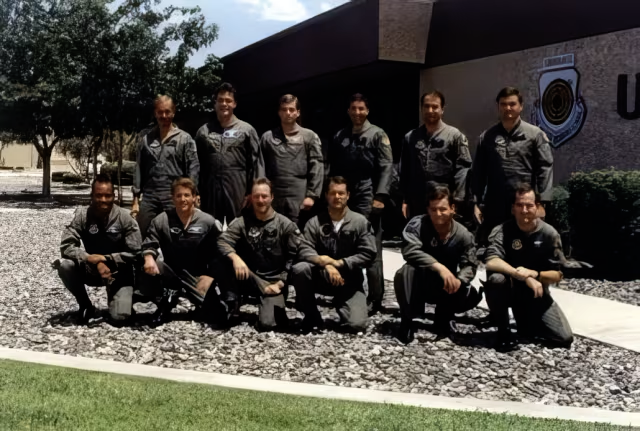
When did you first realize that you had a passion for flying?
CQ Brown, Jr.: [I] know I was going to be an engineer, you know, it was going to be – I was in a five-year program because I am working into a degree program in architecture and civil engineering. And so, it was when I went to summer camp for ROTC, in that camp I wanted to – I got a chance to fly a NAT-37, one of our trainer aircraft. And once I had a chance to do that it was one of those were God, that was, that was so cool. I didn’t do it earlier partly because it was a commitment, longer service commitment associated with that, and as I came into college at 17, I’m not so sure I wanted to do a five-year program and another seven years to age 29, but once I did that and it really, it really hit me, and then I looked around at the others, and they had pilot slots. And I’m fairly competitive, and I go, ‘Well, if they’re getting one of those, I think I can get one.’ And that’s when it really piqued my interested in the flying.
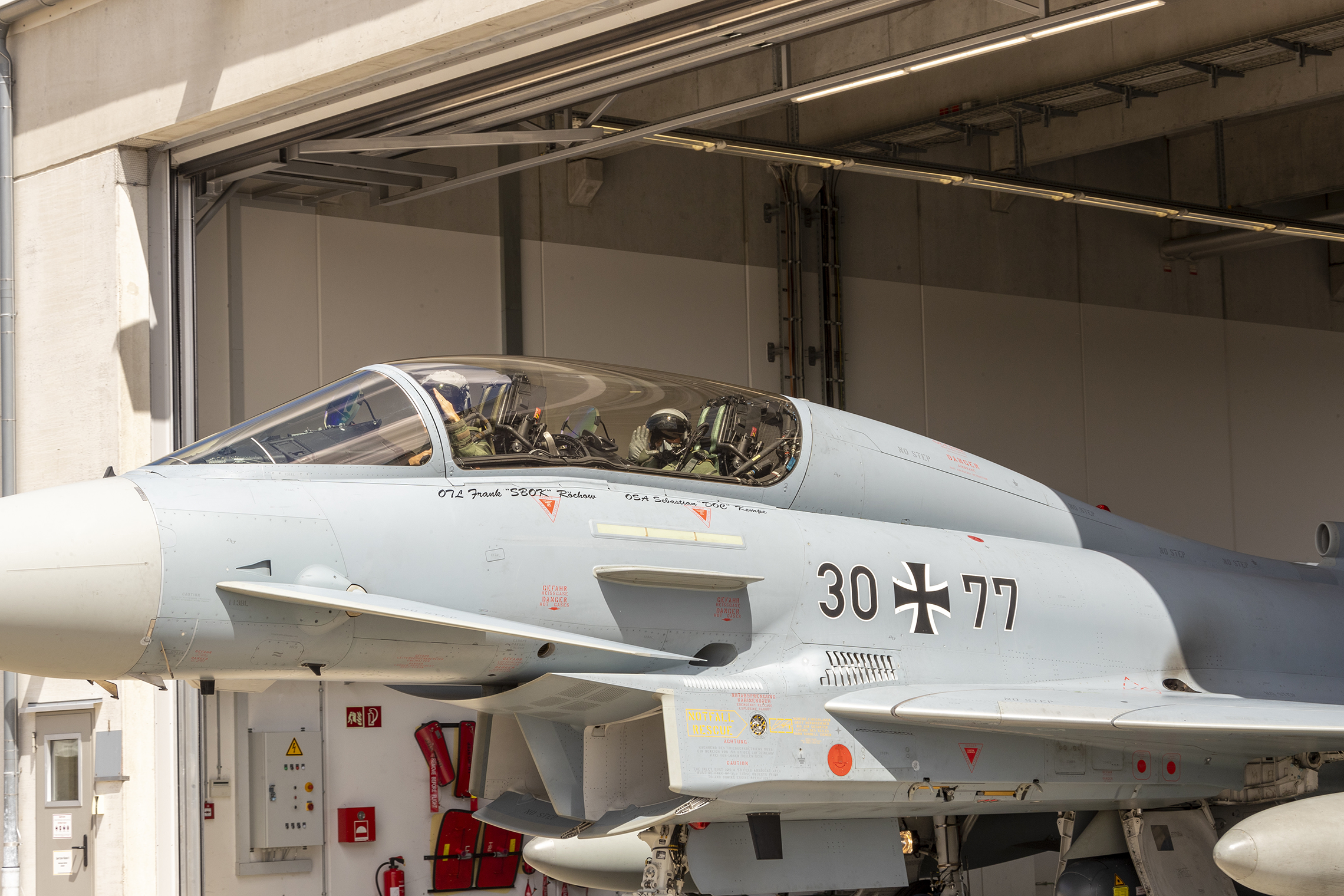
What do you love about flying?
CQ Brown, Jr.: You get away. You get away from email, you get away from just – you compartmentalize a lot and be able to get out. And I think one of the things I’ve always remembered is on a day when it’s really cloudy and it’s raining, and you take off, and you pop through the clouds into the sunshine. It’s those kinds of things that, you know, that most people don’t get a chance to see, get a chance to experience.
And being at the controls of an airplane where you’re almost one with the airplane and it’s, you know, and the F-16, that I’ve flew most of my career, you sit up pretty high. It’s almost riding a magic carpet in some aspects and you, you get so – you and the airplane become one. And that to me is enjoyable where you can actually take an airplane, particularly a fighter like that, and have it do some things and be able to be so in one with the aircraft. And then also just to be, just to see the beauty of nature from above that you don’t get a chance to, most folks don’t get a chance to enjoy on a regular basis.
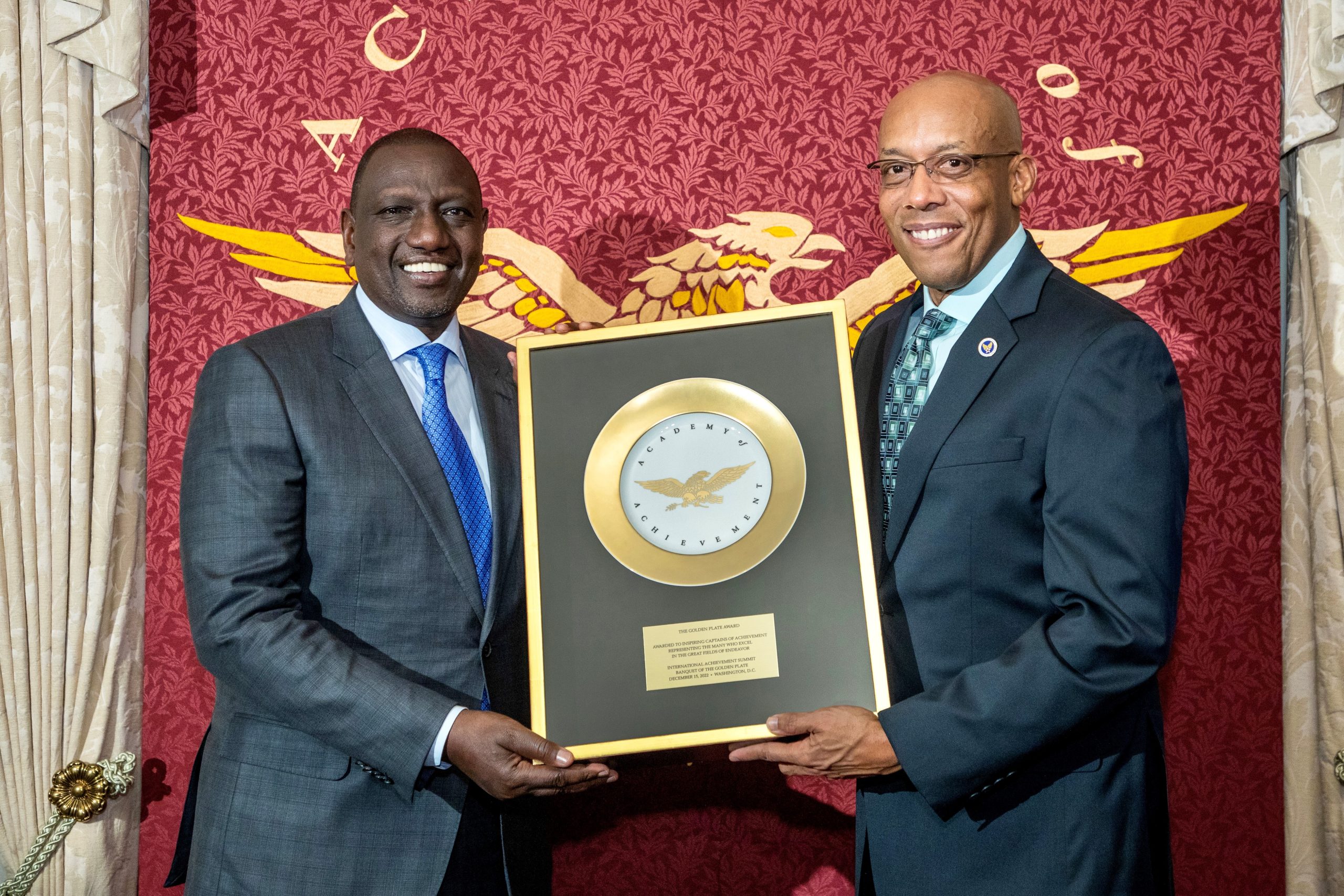
You’ve described flying as a beautiful and meditative experience. How does that contrast with flying in combat? Can you describe the experience and emotions of flying during war?
CQ Brown, Jr.: I think in flying, just even in combat or just day to day, you need to, you need to walk under a little bit of apprehension because if you walk in with too much confidence, you’re going to do something that you’re going to, you know, you either make a mistake or put yourself in a situation you probably shouldn’t be in. And so, I always flew with a bit of apprehension. The thing about combat is it’s when you have a team of airmen and a joint team that come together and being able to execute a plan. It’s the precision of the plan and how all that comes together. And I almost equate it to sports. I’m a huge NFL fan. And so just watching how a game plan can come together and be able to execute and know that you can count on different aspects, whether it’s the tankers that are going to be there to give you gas, or it’s going to be the command and control aircraft that’s going to be there to kind of point out where the threats are, or it’s your wingman that’s flying with you, or the opportunity to, you know, lead a large package of strike package of aircraft, you know, be at the leading edge of, you know, a 20 ship package, and know that you’ve laid out a plan that everybody is doing their part. Those are the kinds of things that excite me of the aspect – And then you’re making a difference. You’re doing things in support of our national objectives. And those are, those – That’s another part of the beauty of watching people who are all dedicated to come together to make things, make things happen. That is another part of this that I thoroughly enjoyed throughout my career.
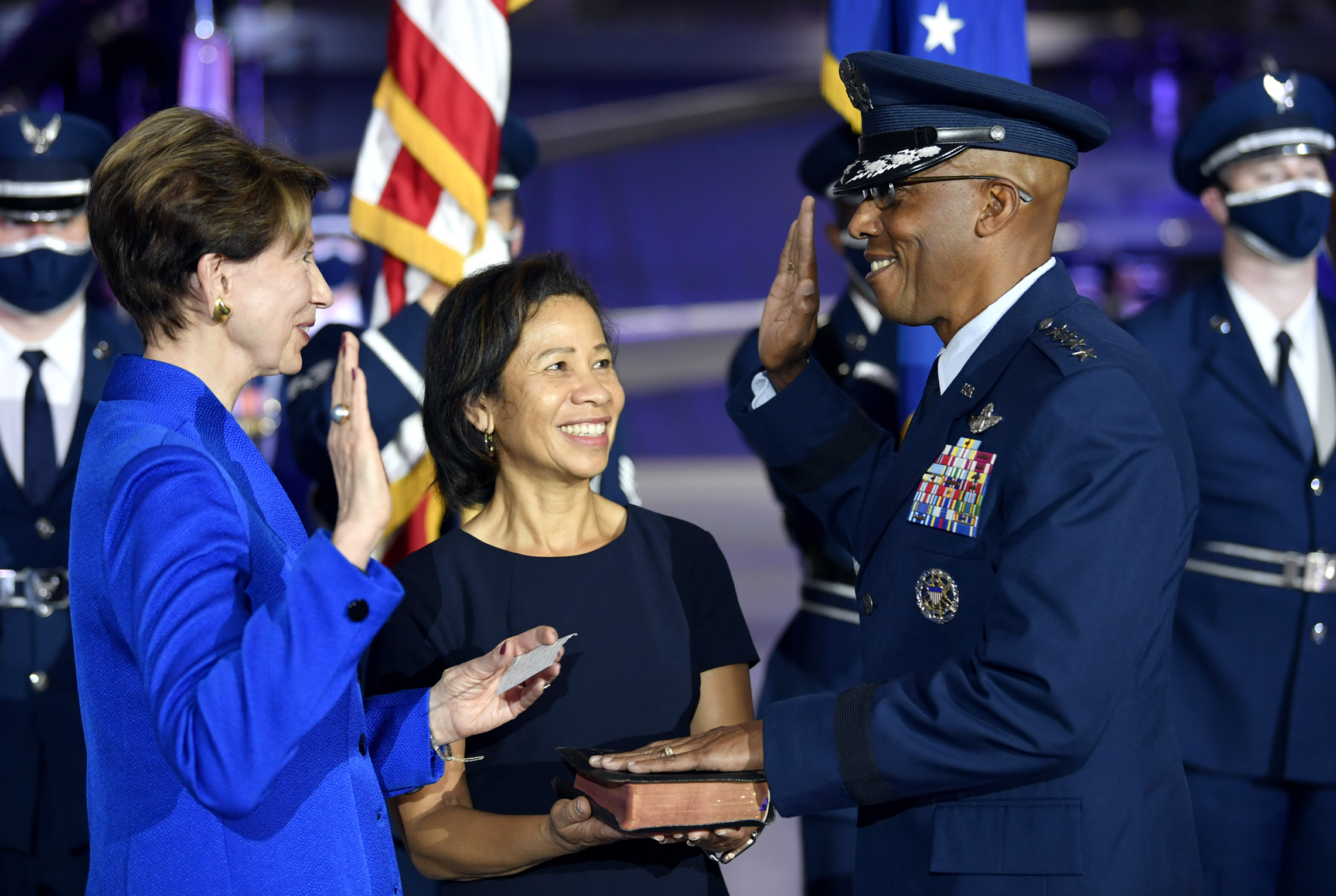
How do you manage the nerves and uncertainty before a mission?
CQ Brown, Jr.: Well, because, I mean, the apprehension here for, whether it’s in combat or in, just in training, the possibility of a situation that you put your life at risk. And, you know, flying airplanes is not risk-free. And so, you – That part of the – I mean, I guess there’s an apprehension, but there’s also the thrill of being able to do things that you fly with a little bit of risk, and you got to have a little bit of that in you to, to be able to execute and be able to fly like that.
CQ Brown, Jr.: I’ve always felt that for every mission, you know, I do say a little prayer before I, before I go. In my G suit, I always flew with a copy of the New Testament in my left pocket, and I still have that New Testament that I keep with me. It’s those kinds of things that you, you know, that you really got to know that there’s something could happen in any one of these. And I’ll just tell you from my own experience having ejected out of an F-16, there’s things, when things don’t go quite like you planned, and you don’t know when that day is going to come, and you just got to be prepared for it.
What happened when you ejected?
CQ Brown, Jr.: I was stationed in Home State Air Force Base in Miami, and we were coming back from the middle of Florida where we do our, where our bombing range is, and it was up at about 21, 22,000 feet and my aircraft got struck by lightning, caught on fire, and then I ejected over the Everglades. And so I spent about 15 minutes in the Everglades before I got picked up by a Coast Guard helicopter.
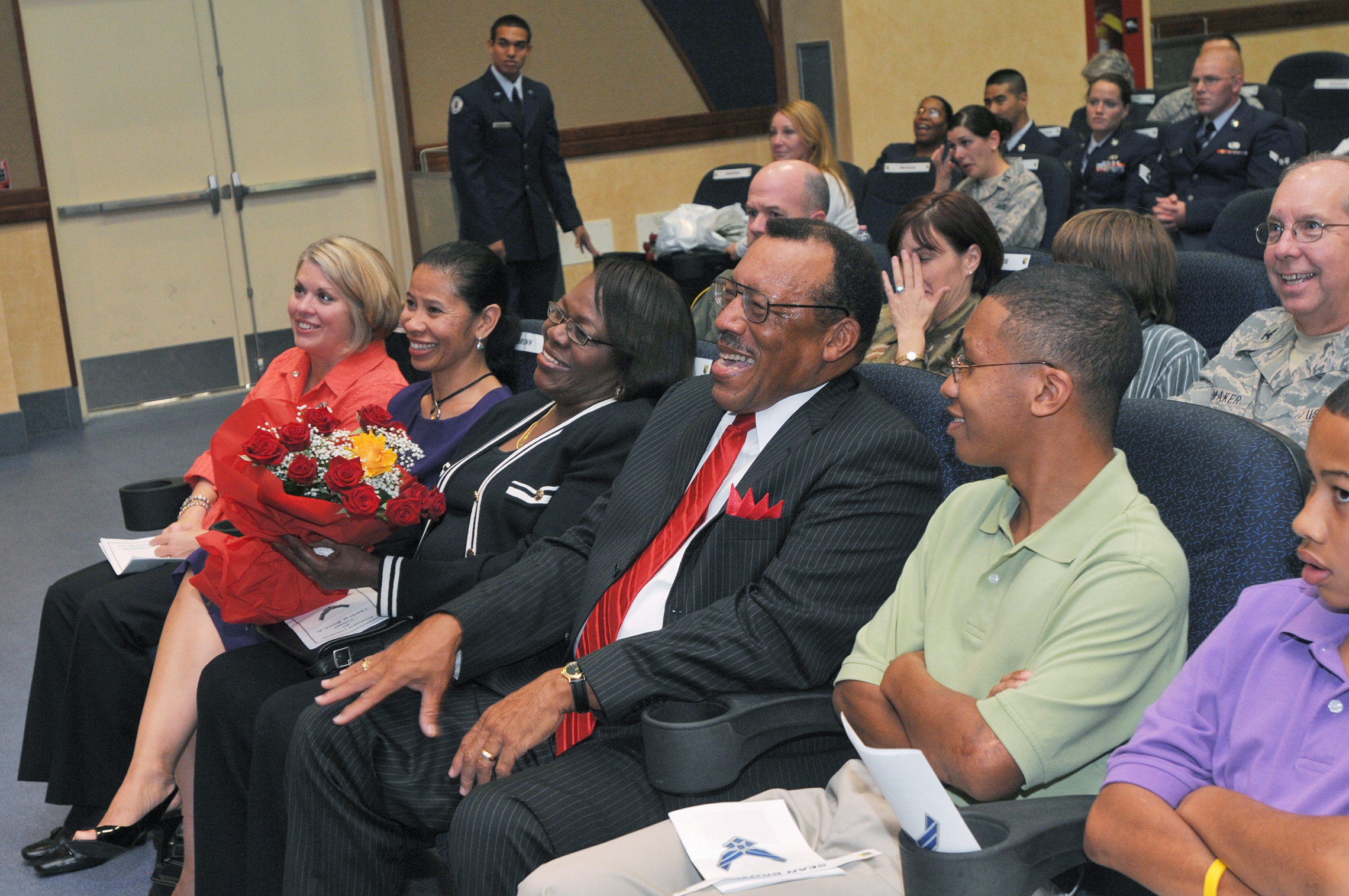
What does it feel like when you’re in a plane that gets struck by lightning?
CQ Brown, Jr.: Well, you don’t really feel it, but you see it. And there’s a big flash, and my wingmen next to me said, ‘You lost your center line tank, center line gas tank. That exploded.’ He said that a couple of times, and then he said, ‘You’re on fire.’ I already knew I was on fire because I had a firelight, and then he – over time. I flew for about another five minutes and then he says, ‘Okay, you have a lot of fire back there now.’ And so, all your training kind of comes into play and you go through this on a regular basis of, you know, all the steps you take if you’re going to eject from the aircraft. And it was – I would just tell you it was a pretty simple decision based on, you know, our checklist says if fire persists, eject. And, you know, it was a pretty simple decision. It was just one of those, once I got into a parachute then I go, ‘Okay, I hope there’s nothing down there.’ Because I’m going into the Everglades and as you might imagine there’s alligators and other things out there, and snakes, and I’m not a big alligator or snake fan. So, it’s, it’s – The training that we go in day in and day out as a military member allows us to make some of these things almost second nature. And so, you worry about it but you don’t. So, it’s kind of – It’s a unique and an odd kind of thing that you, you do worry but you don’t. And that’s the way I felt way throughout my, throughout my Air Force career.
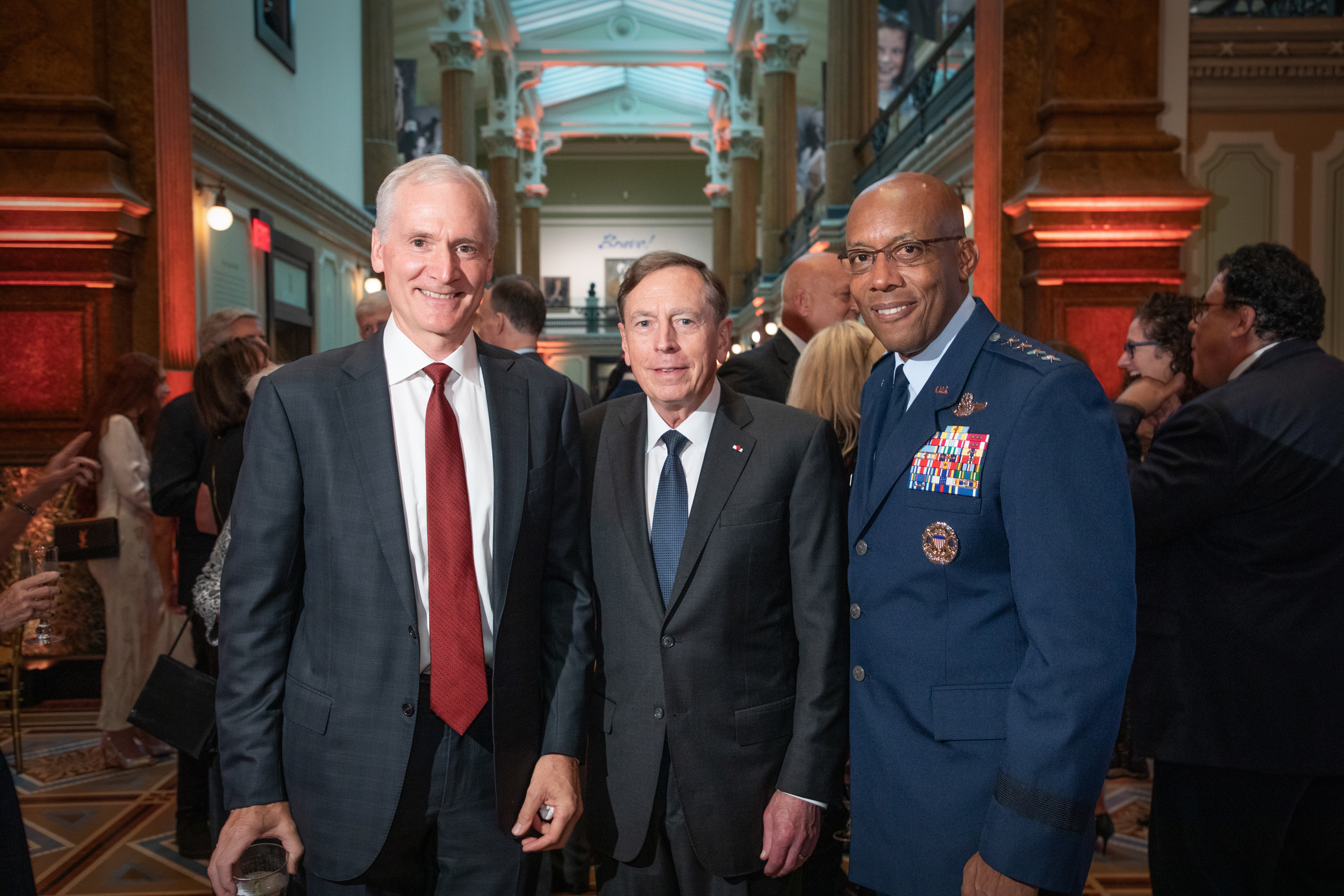
Growing up in San Antonio, you and your sister were the only African American students at your elementary school. Can you share what that experience was like and how it shaped you?
CQ Brown, Jr.: I was in the third grade. So, I think you noticed it but you didn’t, in some aspects. But, we did get treated differently in some cases and, you know, that, that part kind of stands out to me, and I can go into high school, where the high school I went to was in Newport News, Virginia, and it was 50% African American, but I didn’t live in the same neighborhood that most of the African Americans lived in because they were coming from, they were being bussed in and we lived in a different neighborhood where there was only two African American families. And so, it was one of these where I felt like I, you know, I did kind of operate in two worlds, where we lived, and then the church we grew up in, in San Antonio, was all African American, and so I learned to adapt throughout my life to do this. But, it was just one of those, it was a, you stand out.
Can you discuss your experiences with people questioning whether you are “Black enough” and often being the only Black man in the room? How have these situations influenced your approach and performance?
CQ Brown, Jr.: I would say for many minorities it’s, it’s something we deal with all the time. You learn how to adapt as you go back and forth. But, you know, the thing is you’re always being judged, and that’s the part that I think sometimes you got to get used to, the fact that you’re being judged because you’re the only one in the room, whether it’s African American or any other race or gender if you’re the only one in the room then sometimes you may represent, you know, that entire demographic to the majority that’s in the room. You feel the extra pressure to perform because you may be the first and only that has the opportunity, and what you don’t want to do is actually, you know, damage the opportunity for someone else that comes behind you. Because you’re trying to do – In some cases, when you’re in those rooms, you’re the one that’s going to break the barrier and open the door. You want to bust the door open to make sure that there’s others that have the opportunity to come after you. You don’t want to actually have that door shut because of some stereotypical assumption that’s placed on you as an individual or the demographic that you represent.
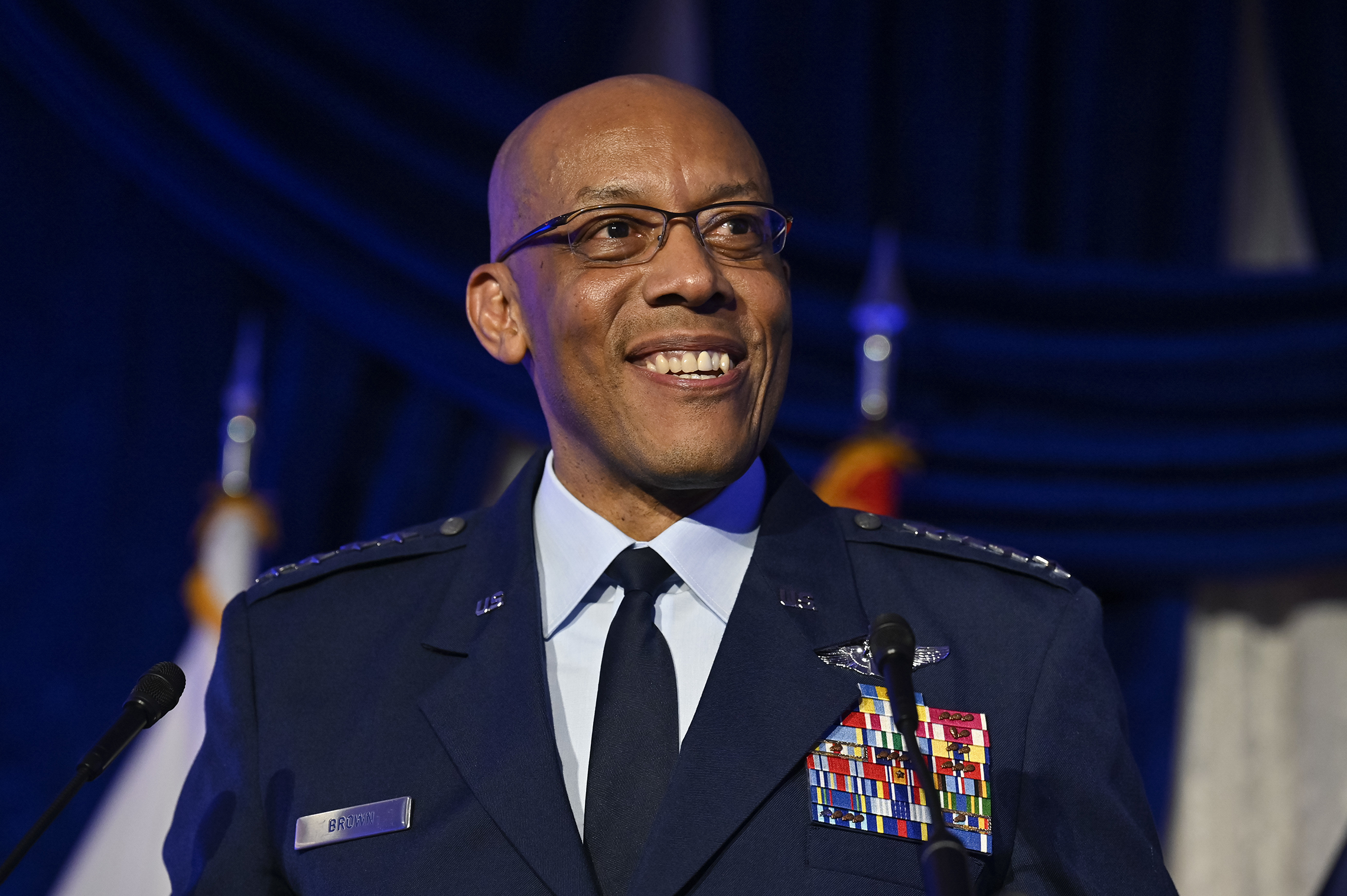
What gives you the confidence to break barriers and pave the way for others?
CQ Brown, Jr.: I think part of it is faith and family. I’m a man of faith. And, you know, I grew up in the church. It goes back to my grandparents, my parents, and just the family. It’s the pressure that – I mean, I wouldn’t call it pressure. The thing about what my parents and the things they, they said, you know, basically, you can be anything you want to be, but they always challenged me. And it was always one of these things that they knew I had, you know, whatever our potential was, even your report card would come home and you show something they go, ‘We know you can do better because you’ve proven in certain aspects that you can do this.’ And so, I think they’ve always – And then there’s always that confidence in me as well. I would say the same thing for my – me, my sister, and my brother because of the confidence they put into us and instilled in us. And then they put us in situations that challenged us, that helps you. You know, the more you get challenged and figure out you can get through this, this is how you, you progress. And I would say the same thing my wife does for our sons.
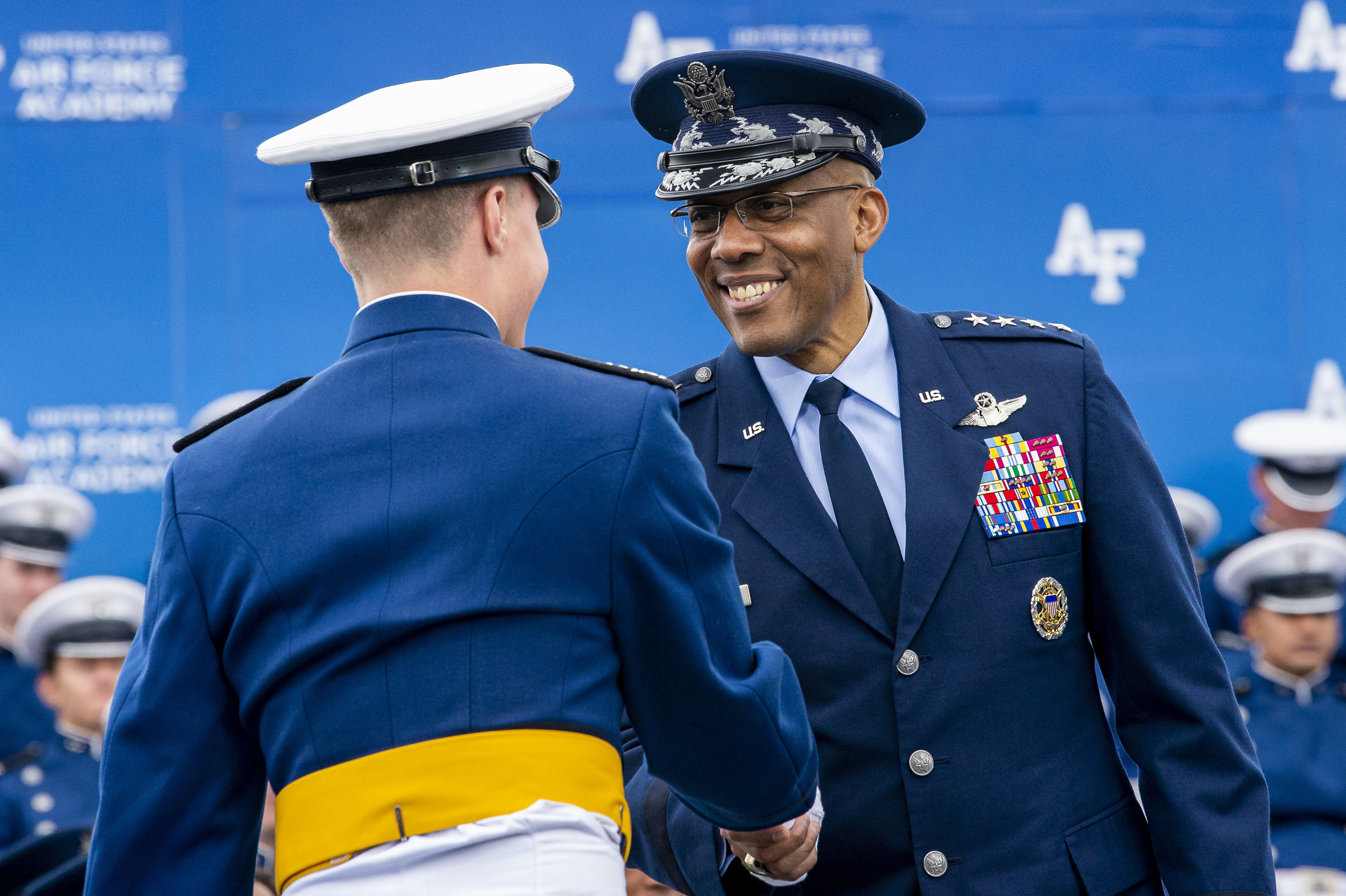
Can you share specific examples of how your family challenged you growing up? Were there other significant childhood experiences that helped you realize your potential?
CQ Brown, Jr.: It was probably when I was in high school, in, you know, junior high school as, you know when you start getting report cards with the grades on them and how they really focused on grades and your work ethic. And then just watching the work ethic from my parents and they became a role model for me. So, it’s those kind of things where they push you and then put you in situations and expose you to things. And one of the things that I did 7th through 9th grade in Germany. You know, I’ll never forget this, but my dad always said, ‘You’re going to get see things that most kids only read about.’ And because of that, they did things and provided us experiences as we were growing up. And because of those experiences, you know, it helped to broaden us and it helped to challenge us. And those are the things that I think really helped me to be broader as a person and as an individual.
And, you know, you also forget the more you know, the more you forgot you don’t know because you start to pull strings in different areas. And I think that, that was helpful to me to push me in certain directions. And also them trying to expose me to certain things to help me develop myself as a young man.
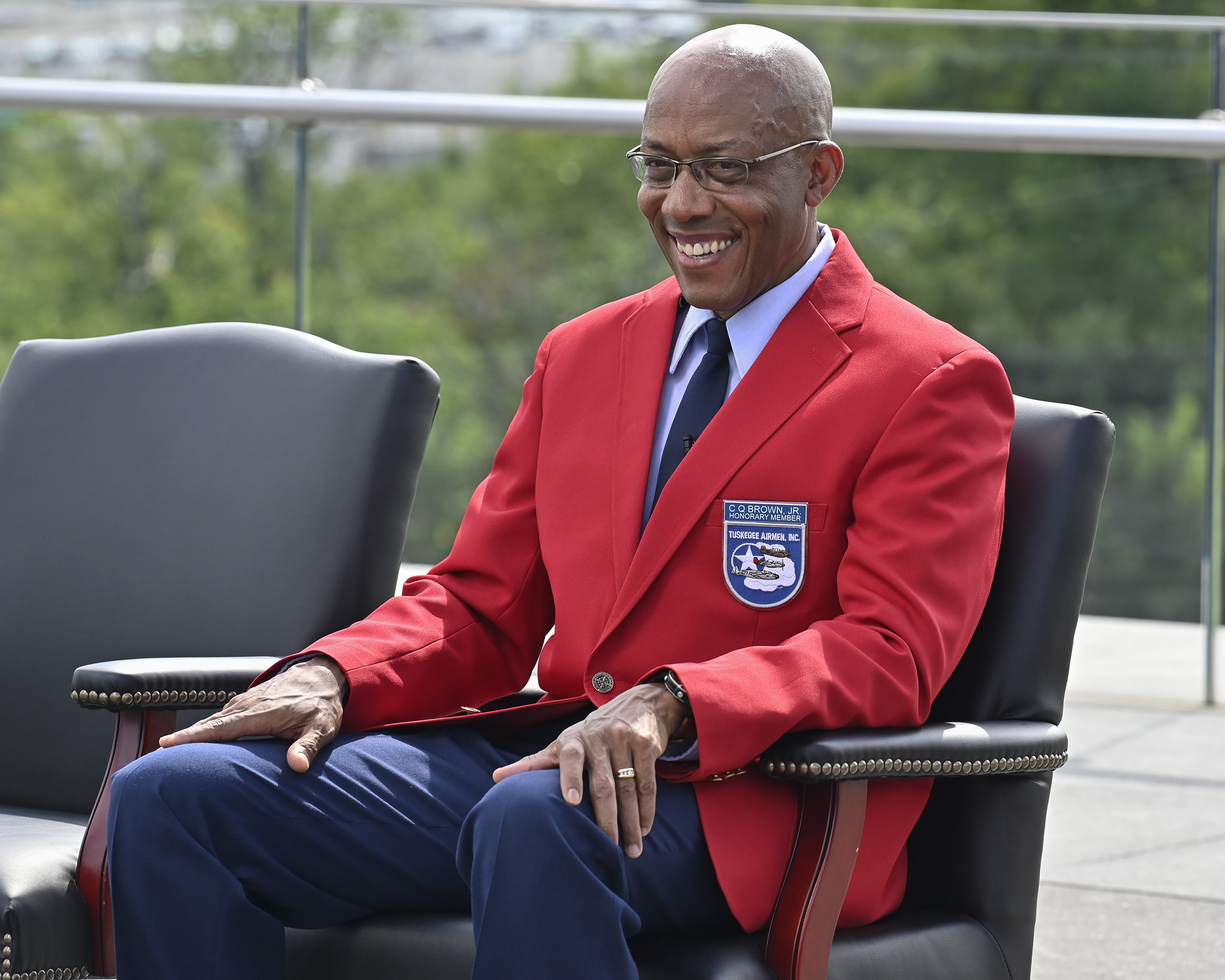
You were born during the Civil Rights Movement and Martin Luther King Jr.’s powerful speeches. Do you have any memories from those times?
CQ Brown, Jr.: There’s nothing that I, you know, other than, you know, situations in – that I dealt with, and you go back to what I talked about earlier when my sister and I were the only African Americans in elementary school where I got called the N-word in like, I remember it was in the 4th grade because that’s the first time I think it, you know, it really, it hit me more than, than – Because at a young age, you know, kids don’t really have biases or racism, we all just, you know, want to hang out. It’s just when you now get to a point, as you get a little older, and I think those are instilled by adults based on what they teach their children. That was probably the first time that it really hit me, and that was probably about 1972ish timeframe. It hurt. It bothered me. I also remember we were reading some of Mark Twain, Huckleberry Finn, and the N-word is in there. And so, it’s – You know, that also kind of – It’s one of those that kind of stands out to you, and you’re doing this in class. So, it’s kind of an awkward type piece that we wouldn’t do today. We’d approach it much differently. And I think it was, in some cases, more accepted back then.
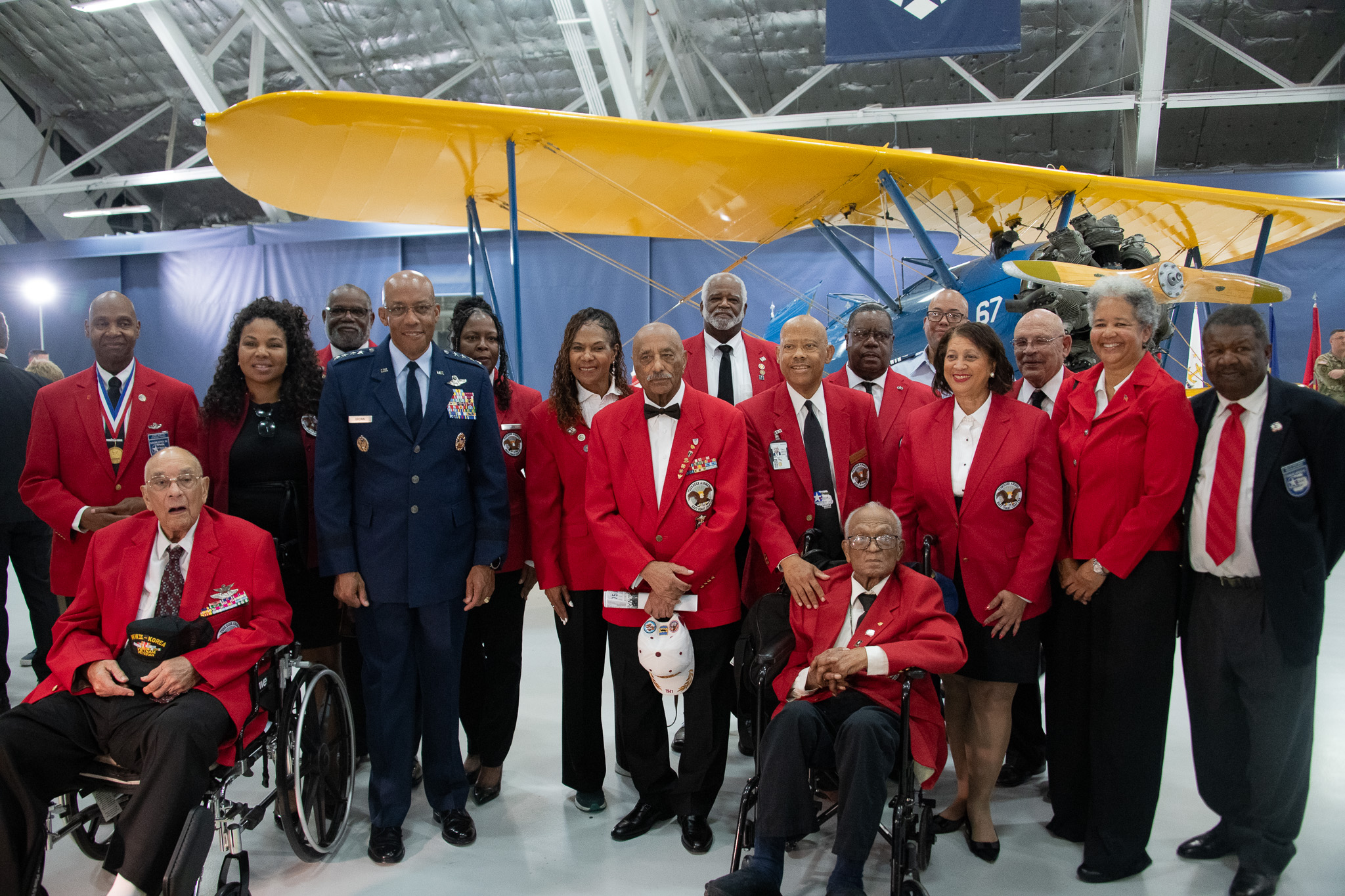
Did you experience discrimination in the Air Force?
CQ Brown, Jr.: To an extent. And partly because, you know, as a fighter pilot and then in my first assignment, I was the only African American in my squadron, in our wing, and this is in Korea, there was only two of us. I was in one squadron, Mark Davine was in the other squadron. There was probably, of the pilots in the wing, there was probably about 60, 60 to 70. And the same thing happened when I went to my next base where we had more squadrons and we had probably close to 70, or 80 to, 80 to 90, there was only two of us. And so I’m in one squadron, and J.J. Johnson is in the other squadron. And so, again, it’s one of those where you’re, you’re representing your entire demographic because you’re the only one in the room, you’re the only one in the squadron. And so, there, there’s added pressure there because you want to do well not just for yourself, but you also want to do well for, you know, others that may come behind you.
Why do you think only 2% of Air Force pilots are African American?
CQ Brown, Jr.: One area that I really believe and have thought through throughout my career, and I think it also applies to me, you only aspire to be what you see. And if you don’t see an African American pilot, then you’re not inclined to go, ‘I can do that.’ If you’re not exposed to it to have the opportunity and, you know, the ride, my opportunity to go fly a T-37 really changed the trajectory in my life and my career. If I had not had that opportunity I don’t know if I would decided to become a pilot. Matter of fact, when I decided I wanted to do this I was told I’d lose my scholarship. I was told to sit on it for a semester, and I did, and I came back and go, ‘I still want to do this.’ And so, it’s one of those areas where for your young people if they’re not, don’t have the opportunity to see it they can’t, they can’t be it. And you don’t have – and this is why, in some cases, you find different demographics gravitate to different career fields based on what they’ve seen or what their parents did because that’s kind of the family business or this is what their aunts and uncles and cousins or brother and sisters have done. And so, that’s why in the Air Force what we’re trying to do today is actually expose more young people of different backgrounds to aviation.
By putting them in airplanes and letting them fly. Matter of fact, I had a young man, who’s not so young anymore, but I was a Colonel and I met him when he was a First Lieutenant and now he’s a Lieutenant Colonel. We met yesterday and we were talking about an aviation program that he’s been, he did just this past weekend where they took 200 young, young men and women of diverse backgrounds and got them in airplanes and got them airborne just so they could be exposed to it and get that thrill of flying. And that’s the way you do this because once you have an opportunity, this may hook one of them to actually go. You may do it for 200, but if you can get five or ten, you may change their trajectory for their life. And those are the things that we have to do by being able to expose young people to aviation, not just for the Air Force, but just, you know, for the nation as well.
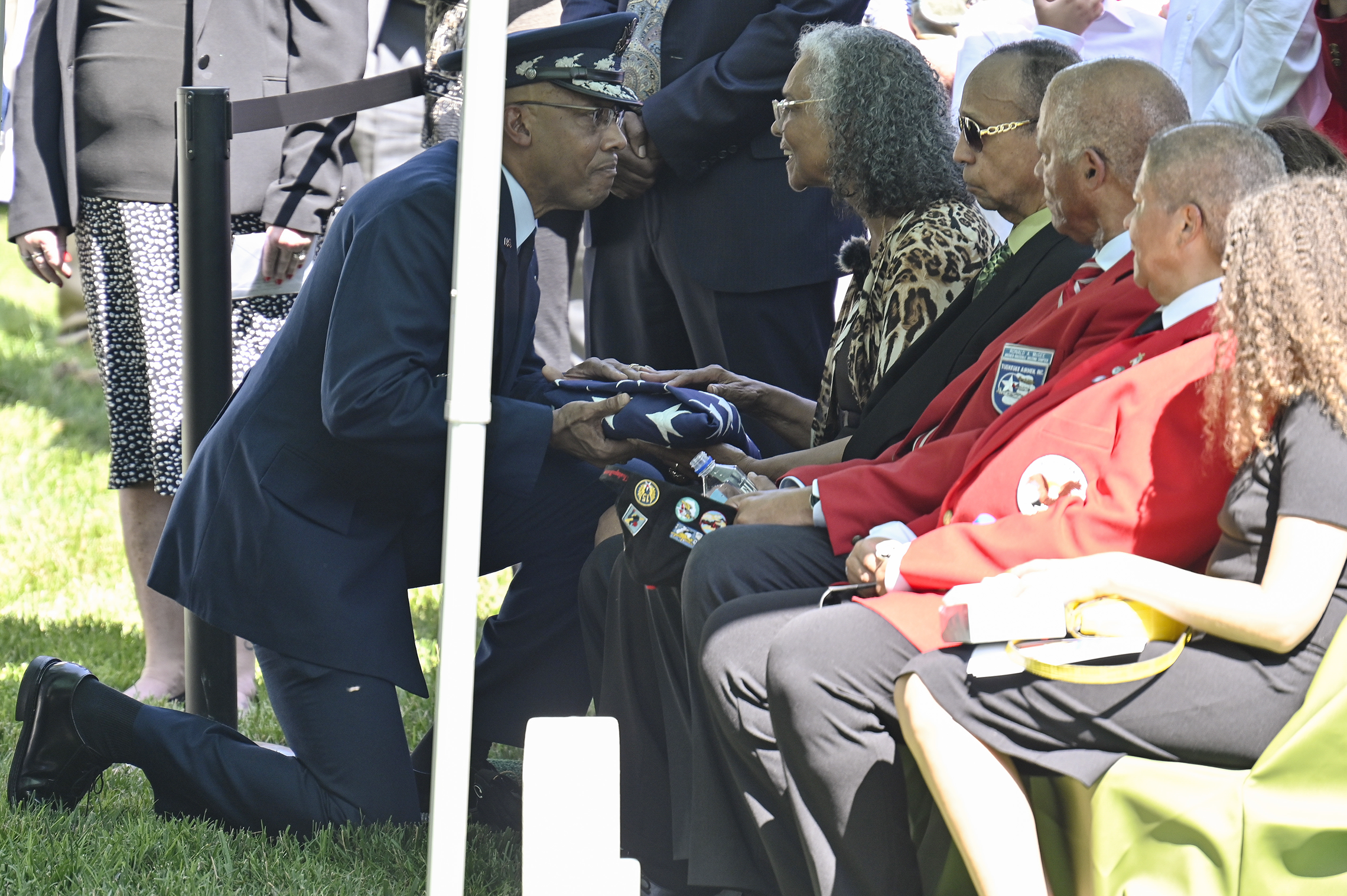
How did pioneers like Lieutenant Colonel James Harvey, a Tuskegee Airman who won the Top Gun Competition in 1949 despite facing racial barriers, influence you?
CQ Brown, Jr.: I’ve met James Harvey. He’s – You know, he’s in his 90s. He’s a fireball and quite impressive just talking to him about his experience, particularly in gunnery competitions back in 1949 that they won. They’ve been an inspiration to me, and I would say probably more so after I came into the Air Force. I was probably aware of the Tuskegee Airmen, but not as much as I am – or once I came into the Air Force, and more and more throughout my career as I’ve been able to engage and meet original Tuskegee Airmen and be able to talk to them and listen to their stories. The more and more I listen to them – I guess the older I get the more inspired I get because I’ve had a chance to engage with so many of them. But, at the same time, knowing that so many of them are passing away. That – And, matter of fact, I spoke at Charles McGee’s memorial service here about three weeks ago. Another Airman, he lived to be 102, and he – Actually, a record-breaking fighter pilot because he’s got more combat missions than almost any fighter pilot in the United States Air Force, over 400. So, quite impressive and flew during World War II, Korea, and Vietnam.
Despite their achievements, the Tuskegee Airmen received little recognition for most of their lives and have only recently been celebrated as heroes. What do you think is their importance in military history?
CQ Brown, Jr.: Well, I think they really helped pave the way to integrate the service, the services. You got to think about the fact that initially, African Americans weren’t allowed to fly. It almost became a requirement just because they needed more pilots. And then it shows to me that, if given the opportunity, many people will actually have the skill set and desire to be able to do many things; they just weren’t given the opportunity before. Or there’s those that thought, just for different reasons, that they weren’t capable. And they proved otherwise. This is what led to the executive order that President Truman signed to integrate the services. You know, I wasn’t there, but, you know, I could just imagine that this had a key role, as they read the history books, they had a key role in changing the face of our military. It doesn’t mean we still didn’t have discrimination of some sort within the military after they integrated, but it did open the door. And if that had not happened I don’t think I’d be sitting here today as the Chief of Staff of the Air Force.
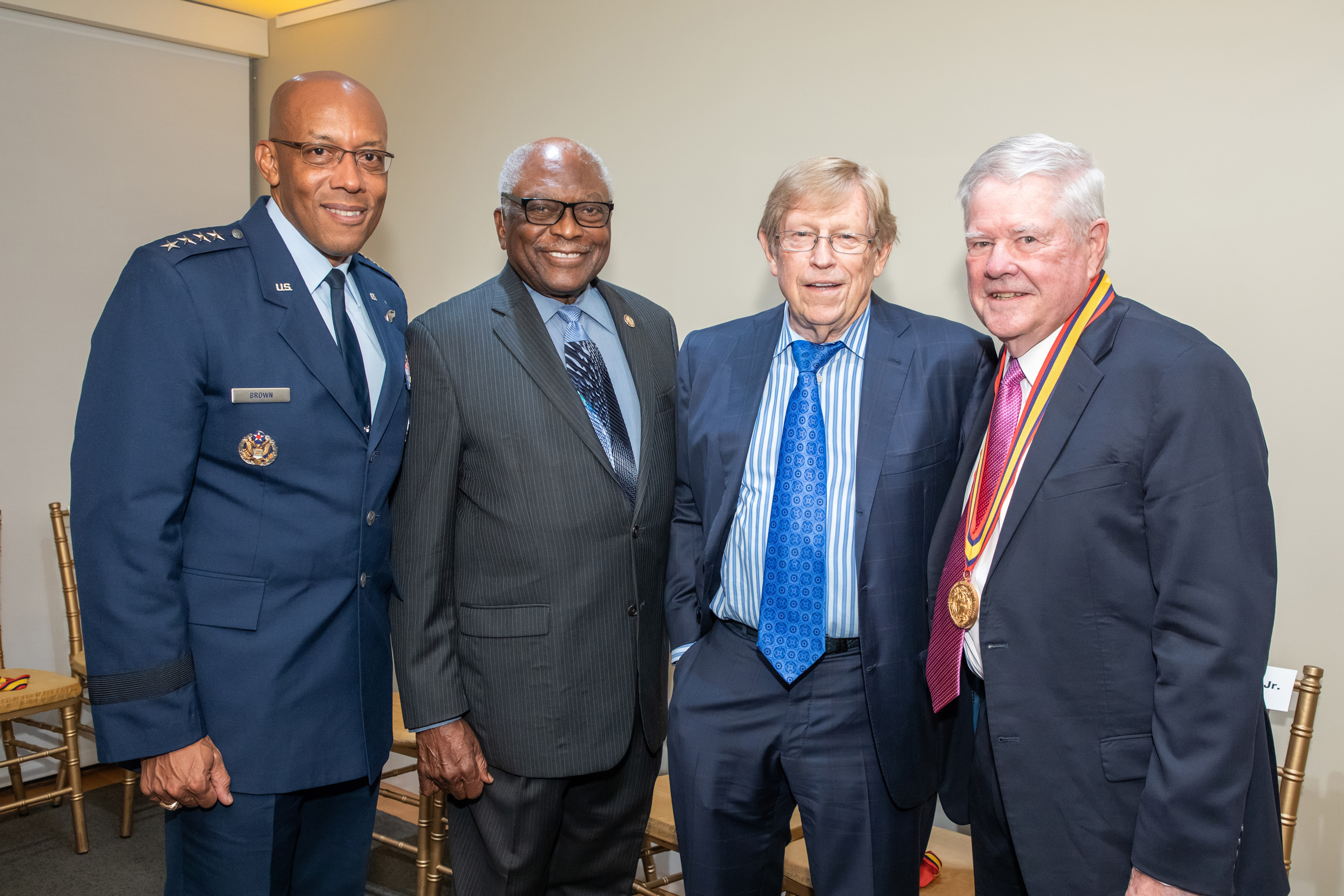
You’ve met many of the Tuskegee Airmen, and as you mentioned, they’re now in their late 90s or have passed away. How would you describe them?
CQ Brown, Jr.: Well, I would say they were patriotic. The fact they wanted to serve their nation. They had perseverance. And they knew it was going to be an uphill battle in certain cases. And – But, they also wanted to prove that, you know, given the opportunity they could, they could, they could deliver. And that to me is an inspiration because I think for anybody, you know, if you – if someone tells you no, you can’t do something, that is a challenge. That’s one of those where you – sometimes – And for me personally, I always think about it, you step up to that challenge because you go, you know, ‘No, I can do this.’ And that’s where the Tuskegee Airmen kind of proved that case where folks at the time said no, they can’t do this. And, you know, they proved them completely wrong. And that, to me, is an inspiration that for any young person to go, you can look at examples like that where someone says, an institution says no, you can’t do this and you prove otherwise.
Why do you think James Harvey, despite being a top combat pilot, chose to serve a country that treated him unequally?
CQ Brown, Jr.: I mean, it’s why I serve. It’s what we believe about the values of our country. And – Good or bad. You know, in every situation there’s going to be some good and some bad, but I think there’s more good than bad. And that when I look at the United States and those that serve, we do this for a reason because we enjoy serving, we have a higher calling to be able to serve our nation. And there may be some things we don’t, disagree with or maybe weren’t treated as fairly as we thought in some cases, but you got to look at it from a very broad perspective. And if you throw in the towel because you come against a challenge, then it’s not worth fighting for. And so, that’s why I really believe in some cases you’ve got to get through some of these challenges to prove some, some things wrong, you know, and be able to make the case and be – In some cases, you got to be a little vocal about some of these. And it may not happen right away. You actually sometimes have to be very consistent and persistent to actually drive change. And I mean, that’s something I’ve carried with me throughout my Air Force career is, you know, I don’t stop at the first no, I talk about the five stages of grief, I talk about the five stages of no. Hell no, no, we’ll think about, not a bad idea, we should be doing it already. You got to get through all five stages. If it’s something you really believe in you got to get all through all five stages. If you stop at the first hell no, then it’ll never happen, it’ll never happen. You got to continue to push forward particularly if it’s something in your heart of hearts, you really believe in, you got to get through all five stages.
No, actually I spent a lot of time thinking and reading. I’m an introvert, so I just take in information and I like to take very complex problems and then simplify them in things that resonate with me and be able to share those. And that’s, you know, I’m not sure how. Several years ago, I came up with this, and it’s just, I’ve been in positions of leaderships where you go, ‘Hey, we want to go do something.’ And then someone tells you no. I go okay; that doesn’t make any sense to me. And so, what I found is if I have very consistent and persistent in my message, and it may not be ready for primetime. I mean, you got to look at the environment when you approach some of these things and then you got to come back and maybe reassess how you continue to approach and bring that idea forward. And that, to me, has been one of the areas just because I’ve always challenged things. It’s easy to say no, it’s hard to say yes. If you say yes that means you may have to do something in your sight. And I say that people are inherently lazy. Okay, you don’t necessarily want to do a lot of work unnecessarily. And so, it’s easy to say no. If you say no then you don’t have to do anything. If you say yes then it may require some work on your part. And that’s why some people say no and that’s why you got to kind of walk, work with them to be able to get through all five stages.
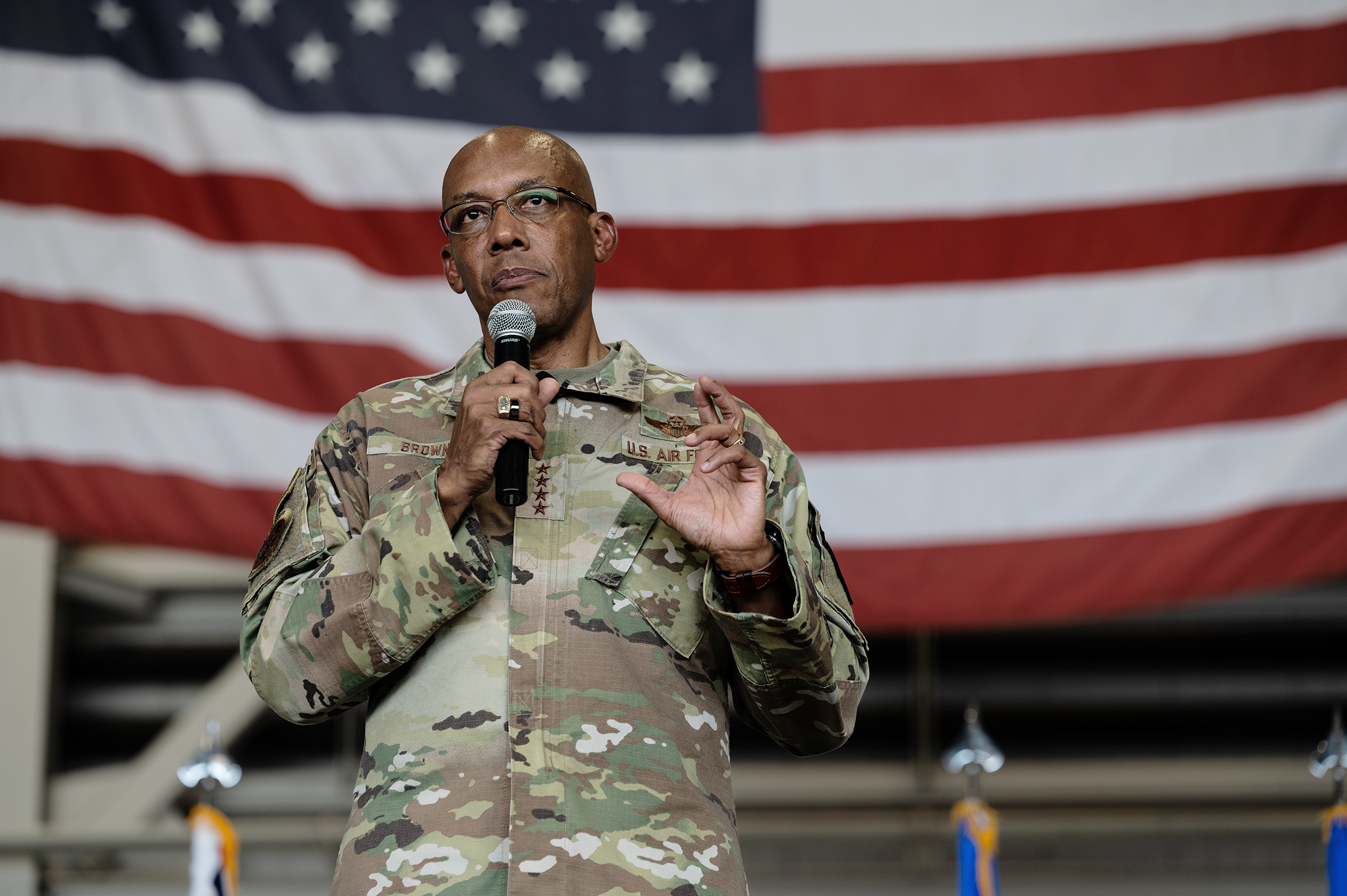
Tell us about one of the biggest challenges you have faced.
CQ Brown, Jr.: I’ve had several. I think probably the initial challenges were my initial F-16 training as well as my – when I got to my first assignment. Because I had so much struggle with my initial F-16 training. I had done well on pilot training, but initial F-16 training, I struggled a little bit. And then, I went to my first operational assignment. And then, when you get there, you do some training and then you do your initial check ride to be a mission-ready F-16 pilot. Just flying skills. Some things that I, you know, I – As it got more complex I probably, you know, just struggled in certain areas. And then when you do your, your check ride, you know, there are certain criteria of, you know, that you have to, that you have to do, and one of those is, it’s a bombing mission, and you have to actually have your bomb land in a certain criteria. Well, my fell well outside the criteria and I failed the check ride. And so, the impression you make, as I like to say, you never get a second chance at a first impression, so the impression as a brand new pilot and the only African American in the squadron and you fail your check ride, that didn’t go so well, but it was a motivator for me.
When you struggle or fail, what steps do you take, or what do you tell yourself to keep going?
CQ Brown, Jr.: It’s faith, it’s attitude. I think the aspect of, you know, when you have a failure it’s not so much that you failed, it’s what you do after you failed and it’s the attitude you have. And there’s a quote from Martin Luther King Jr. that I’ve somewhat adapted to make it gender neutral, but it’s – he says, ‘The measure of our men’ I say the measure of our leader is not where they stand in comfort and convenience, but where one stands in challenge and controversy. And so when you have challenge and controversy, or you have failure, how do you respond? That, to me, is a sign of a leader. That’s a test of your leadership. That’s a test of your fortitude as an individual. And I think those are so important that, you know, you almost need to have a little failure in your life to actually make you stronger. And I operate with, you know, those that I’ve trained, and they get to a certain level, they’ve never failed any, any, you know, not a single ride throughout their training, and then they, they come – when I was an instructor at the Weapons School, and then they fail there, and it’s devastating for them. And you can see those that have actually failed and struggled they tend to do better in the long run than those that have actually been able to ride it, you know, without any hiccups throughout. And so that – There is some value when you have these setbacks or failures, or I call them ‘aw, shucks’ moments where things don’t get quite work out right because it makes you stronger, it builds character, and from there you become a better, a better leader and a better person.
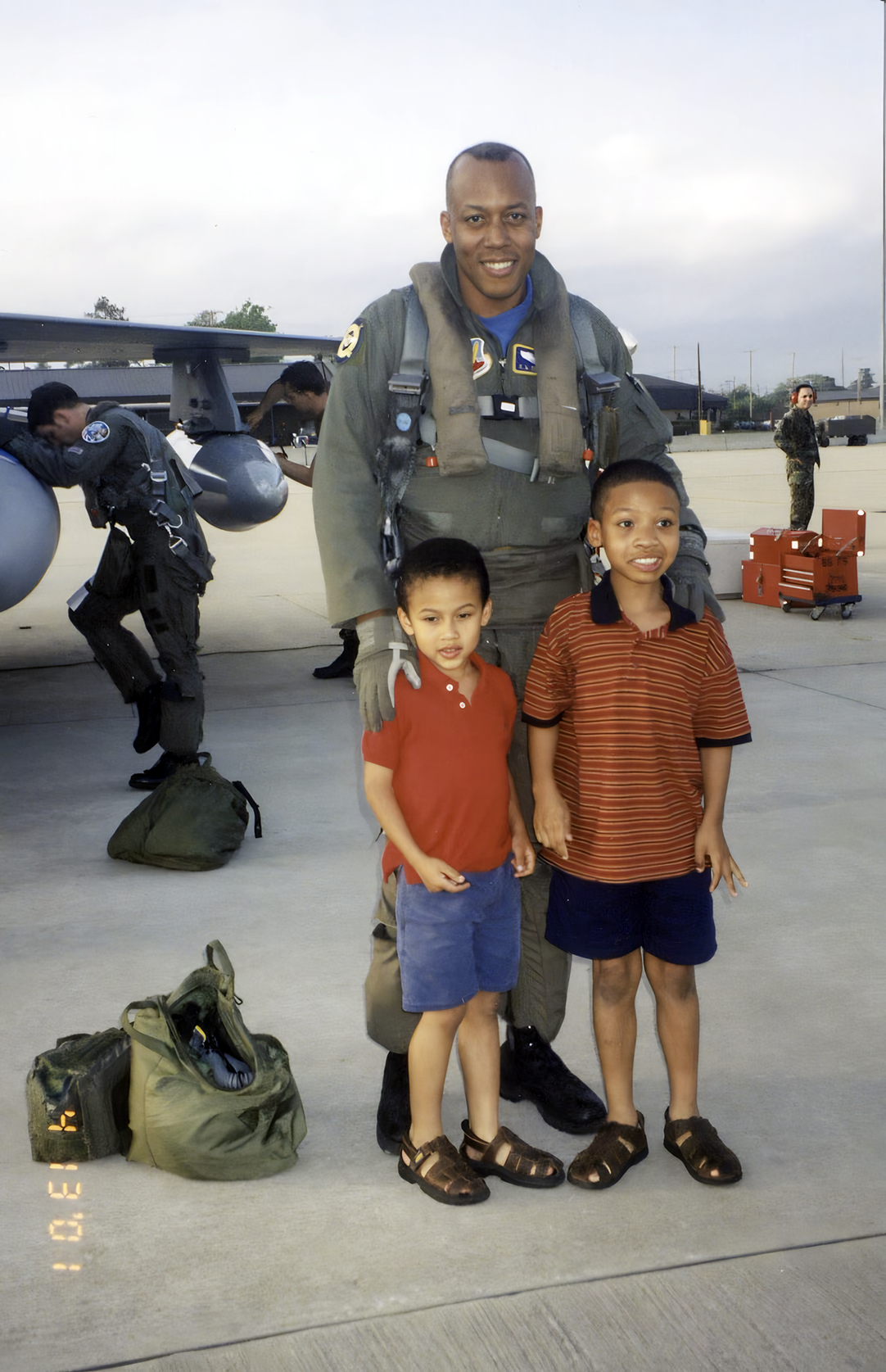
As a military leader, why did you decide to speak out after the George Floyd incident?
CQ Brown, Jr.: You know, part of this is I’ve watched, you know, you watch over the years, and you can watch a little bit today of what happens to African Americans in certain situations, so it’s frustrating to watch. And I know when it happened, my wife and I watched the news, and we were very frustrated by seeing what had transpired. So, I’d had my confirmation hearing, but I had not been confirmed yet, so I was waiting to be confirmed as the next Chief of Staff of the Air Force. And so I was kind of torn on what to do. And it was – on Facebook someone asked, ‘Hey, what is General Brown going to say?’ And someone from my staff chimed in and said, ‘He’s waiting to be confirmed, so he’s not going to say anything right now.’ So that was, that was playing in mind. The other part was our youngest son went to Washington University of St. Louis, and his freshmen year was what happened in Ferguson, Missouri, which is about two miles from his campus. So, we’re in Hawaii and he calls us on a Sunday, and he was struggling. And so, in the conversation he asked, ‘Hey dad, what is PAC AF?’ You know, Pacific Air Force is going to say. And as a Commander of Pacific Air Force, what he was asking me is, ‘Dad, what are you going to say?’ And so, I kind of took that in and that was on a Sunday. And Monday I came to work and they told me, you know, the staff was saying, they’re working back under DC, they go, ‘Hey, you’re going to get confirmed on Tuesday.’ And so Tuesday came and went, and I didn’t get confirmed. And I said, ‘Okay, I’m just going to do this.’ So, I wrote out a script of what I wanted to say because there’s a lot of things that are kind of going through my mind of what I wanted to say, how I wanted to say it, and then we taped it on Thursday. And I really, it was kind of – My intent was really to do it just for, kind of directed at the airmen of Pacific Air Forces. I had no intent for it to go as broad as it did, but I’m glad it did.
